We’re independently supported by our readers and we may earn a commission when you buy through our links.

What are you looking for?
Search ideas for you, thesis nootropics review.
Sheridan Grant
Content Specialist
Sheridan is a writer from Hamilton, Ontario. She has a passion for writing about what she loves and learning new things along the way. Her topics of expertise include skincare and beauty, home decor, and DIYing.
Table of Contents
About Thesis Nootropics
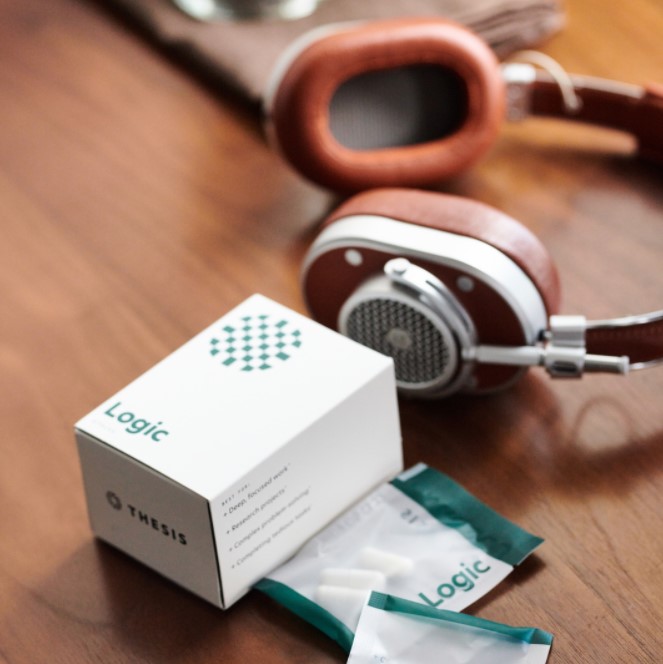
Hands up if you guzzle five coffees a day to stay awake, have tried all the supplements in the book desperate to improve your headspace, and aren’t interested in prescribed medications. Designed to increase focus , Thesis nootropics might be for you.
Thesis offers a customized blend of ingredients designed to optimize your cognitive function , with personalized details that tackle your specific needs. Nootropics boost brain performance in the same way a stimulant would, without the common negative effects.
A study published in the Journal of Alzheimer’s Disease found that nootropics may help improve cognitive function in people with Alzheimer’s disease.
Interested in finding out more about the brand and how it works? Leaf through our Thesis Nootropics review. We’ll be your guide through the company and the process, as well as details on the treatments, highlights from customer reviews, answers to important FAQs, and more, to help you decide if it’s worth the try.
Pros and Cons
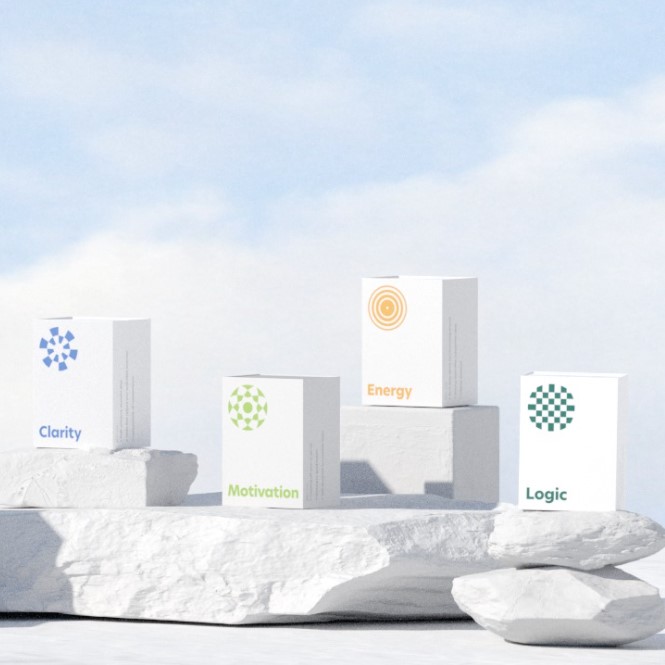
- Multiple cognitive benefits: Thesis Nootropics offers a variety of blends that cater to multiple aspects of cognitive function.
- Long-term effects: On top of short term benefits for daily life, Thesis nootropics ingredients are designed to impact the brain in the long-term.
- Personalized recommendations: Thesis Nootropics makes personalized recommendations based on your goals and unique brain chemistry.
- Potential side effects: The most common side effects to watch out for when you start taking Thesis Nootropics include heartburn, headaches, confusion, dizziness, loss of appetite, and digestive issues.
- Need to stop taking if issues arise: If you experience a headache or an upset stomach that won’t go away while taking their nootropics, Thesis recommends that you stop taking them.
What is Thesis Nootropics?
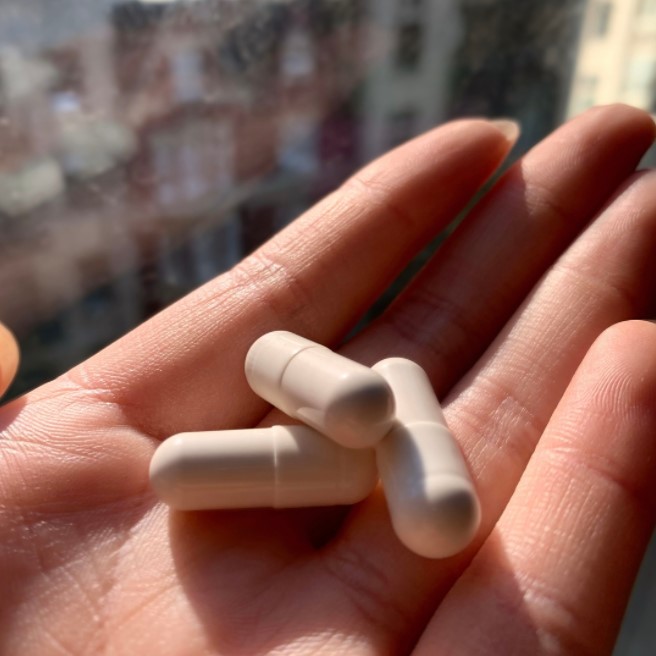
Nootropics are nutrient compounds and substances that are known to improve brain performance , such as caffeine and creatine. They help with issues that affect motivation, creativity, mood, memory, focus, and cognitive processing.
Nootropics are the ideal addition to an already healthy lifestyle that consists of exercise, proper nutrition, and enjoyable activities. Thesis nootropics are carefully formulated to target specific needs, ranging from energy to creativity. The brand focuses on safety, ensuring that all supplements adhere to FDA guidelines and go through multiple clinical trials.
How Thesis Nootropics Works

With all that being said, you may be wondering how Thesis provides users with an option that is specific to their needs. Fortunately, the process is simple and hassle free. Here’s how it works:
- Take the Thesis nootropics quiz
- Answer questions about your basic information
- Receive personalized recommendations
- Get your starter kit for $120 , or $79 monthly when you subscribe
After that, you’ll select one formula to take each week, taking one day off in between each different option. You’ll also track your results in the daily journal over the month to see how they affect your daily life.
From there, it operates as a subscription service. Users will be able to optimize their next shipment by telling the brand which formulas worked best.
If you don’t like any of the blends in your box, let the company know and they’ll switch it for something that’s a better fit for your lifestyle, genetics, and goals.
Thesis Nootropics Ingredients
Thesis Nootropics is a brand that offers personalized nootropics designed to enhance cognitive function and overall brain health. Their blends contain a variety of ingredients that are carefully chosen for their cognitive-boosting properties. Here are some of the key ingredients in Thesis Nootropics:
- Cognizin (Citicoline) : Cognizin is a type of choline that is known for its ability to enhance cognitive function, including memory and focus.
- L-Theanine : L-Theanine is an amino acid that is found in green tea, and is known for its ability to promote relaxation and reduce stress and anxiety.
- Lion’s Mane Mushroom : Lion’s Mane Mushroom is a type of medicinal mushroom that is believed to have cognitive-boosting properties, including improved memory and focus.
- Rhodiola Rosea : Rhodiola Rosea is an adaptogenic herb that is known for its ability to reduce stress and fatigue, and improve mental clarity and cognitive function.
- Ashwagandha : Ashwagandha is an adaptogenic herb that is known for its ability to reduce stress and anxiety, and improve memory and cognitive function.
- Phosphatidylserine : Phosphatidylserine is a type of phospholipid that is found in high concentrations in the brain, and is believed to support cognitive function, including memory and focus³
- Alpha-GPC : Alpha-GPC is a type of choline that is known for its ability to enhance cognitive function, including memory and focus.
- TAU (uridine): TAU is a blend of uridine, choline, and DHA, which is believed to support brain health and cognitive function.
- Artichoke extract : Artichoke extract is believed to enhance cognitive function by increasing levels of acetylcholine, a neurotransmitter that is important for memory and learning.
- Dynamine : Dynamine is a type of alkaloid that is believed to enhance cognitive function by increasing levels of dopamine, a neurotransmitter that is important for mood and motivation.
Overall, the ingredients in Thesis Nootropics are carefully chosen for their cognitive-boosting properties, and are designed to work together to enhance overall brain health and cognitive function.
Thesis Nootropics Health Benefits
Thesis Nootropics is a brand that offers personalized nootropics designed to enhance cognitive function and overall brain health. Their blends contain a variety of ingredients that are carefully chosen for their cognitive-boosting properties, and offer numerous health benefits. Here are some of the health benefits of Thesis Nootropics:
- Increased cognitive energy : One of the key benefits of Thesis Nootropics is increased cognitive energy, which can help improve productivity, mental alertness, and motivation, as it contains cognizin .
- Enhanced mental clarity : Another benefit of Thesis Nootropics is enhanced mental clarity,given from Lion’s Mane Mushroom which can help reduce brain fog and improve focus.
- Improved memory and learning abilities : Thesis Nootropics contains ingredients that are believed to improve memory and learning abilities, like Phosphatidylserine , which can help users retain information more effectively.
- Elevated mood : Thesis Nootropics may help elevate mood and reduce symptoms of anxiety and depression, thanks to ingredients like L-Theanine and Ashwagandha .
- Lowered stress levels : The adaptogenic herbs in Thesis Nootropics, such as Rhodiola Rosea and Ashwagandha , are known for their ability to lower stress levels and promote relaxation.
- Boosted focus : Thesis Nootropics contains ingredients like Alpha-GPC and Artichoke extract , which are believed to boost focus and concentration.
While Thesis Nootropics offers numerous health benefits, it’s important to note that the long-term effects of nootropics are not yet fully understood and more research is needed.
3 Thesis Nootropics Bestsellers
Thesis energy review.
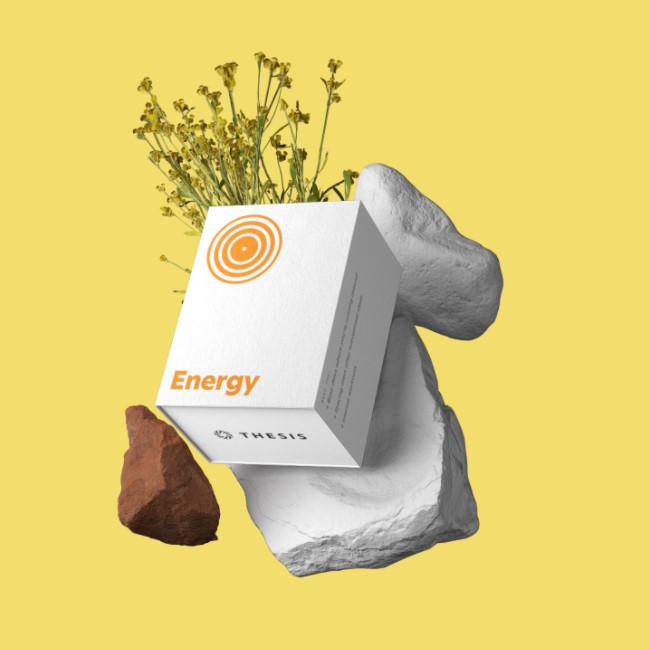
If you’re constantly struggling to keep up with the demands of your busy life, it might be time to try a natural energy booster like Thesis Energy. This powerful nootropic blend is specifically designed to increase energy, overcome fatigue, and build mental stamina.
Thesis Energy is caffeine-free, making it a great option for those who are sensitive to caffeine or looking for a natural alternative to traditional energy drinks. The Energy formulation is designed to help improve focus and mental clarity, increase cognitive energy, and reduce fatigue. Whether you’re facing a busy day at work, recovering after a night of poor sleep, or gearing up for an intense workout, Thesis Energy can help you power through.
Each ingredient in Thesis Energy is carefully chosen for its energy-boosting properties. The specific ingredients can vary depending on your needs, but they work together to help increase energy, improve mental clarity, and reduce fatigue.
To get the most out of Thesis Energy, take it every morning on an empty stomach. You can also take it again after lunch if you need an extra boost. It’s designed to help you tackle busy, hectic days, recover from poor sleep, and power through intense workouts.
If you’re tired of relying on coffee and energy drinks to get through the day, it might be time to give Thesis Energy a try. Check availability and start boosting your energy naturally today!
Thesis Creativity
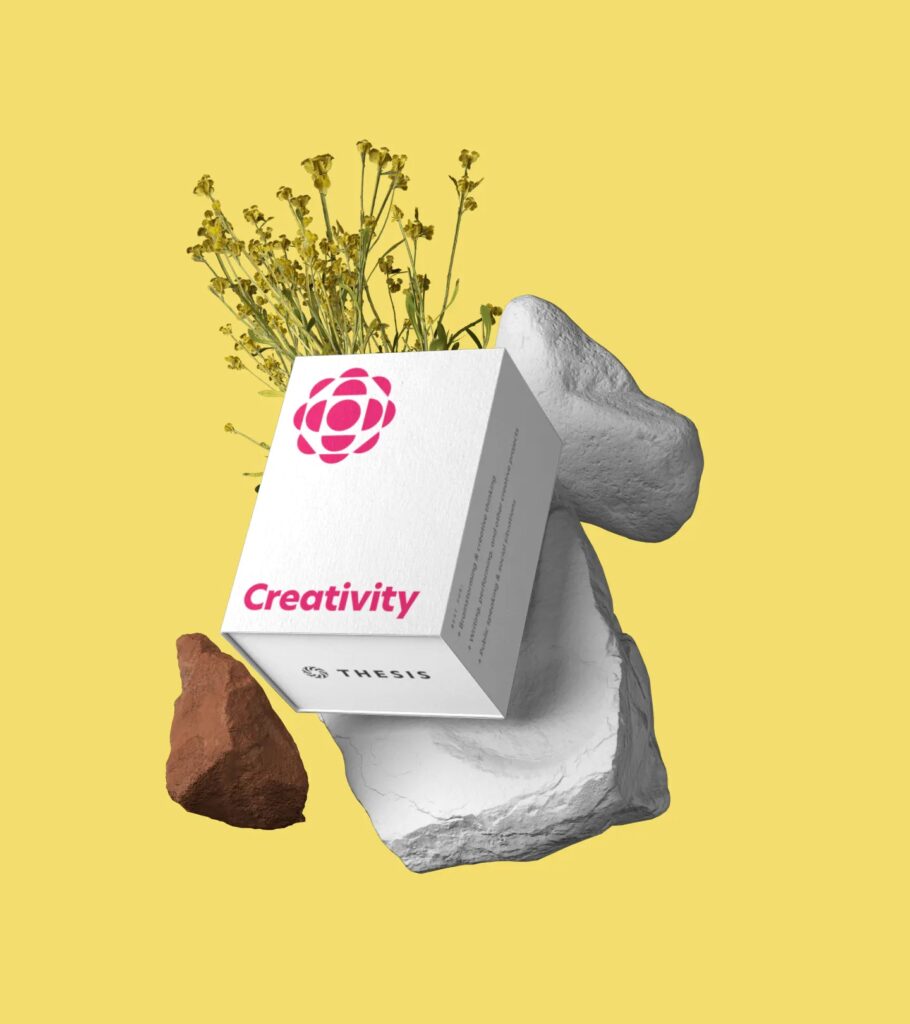
If you’re someone who struggles with creativity or finds yourself feeling stuck in your creative endeavors, Thesis Creativity may be worth considering. This nootropic supplement is designed to help spark inspiration, enhance verbal fluency, and boost confidence in your own great ideas.
So what’s in Thesis Creativity? The ingredients may vary depending on your specific needs, but these ingredients work together to support stress management, memory function, mood regulation, and energy production.
By supporting stress management, memory function, and mood regulation, Thesis Creativity can help free up mental space for more creative thinking. Additionally, the caffeine and L-theanine combo can provide a boost of energy and focus without the jitters and crash that can come with caffeine alone.
To get the most out of Thesis Creativity, it is recommended to take it every morning on an empty stomach and again after lunch if you need an extra boost. This nootropic blend is particularly helpful for brainstorming and creative thinking, writing and creative projects, and public speaking and social situations.
As with any nootropic supplement, it’s important to note that the long-term effects of Thesis Creativity are not yet fully understood and more research is needed. It’s always a good idea to speak with a healthcare professional before adding any new supplements to your routine.
In summary, if you’re looking for a little extra help in the creativity department, Thesis Creativity may be a valuable addition to your nootropic lineup. Its unique blend of ingredients can help support mental clarity, mood regulation, and energy production, making it a valuable tool for any creative individual.
Thesis Logic
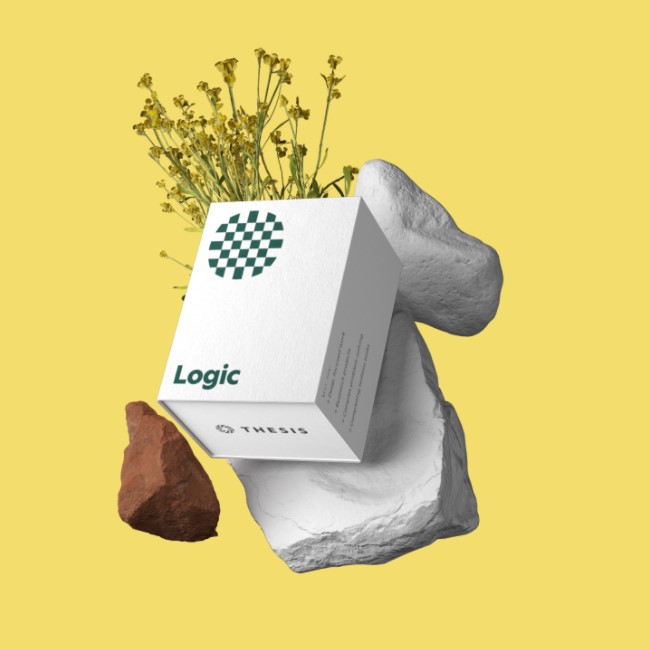
If you’ve been having trouble with your memory lately, such as forgetting what you had for lunch yesterday or struggling to recall common words, then Thesis Logic may be just what you need. This formula is designed to help enhance your processing speed, boost your memory, and deepen your thinking.
Thesis Logic is caffeine-free, making it a great option for those who are sensitive to caffeine. The formula is ideal for use during deep, focused work, complex problem-solving, research projects, and completing tedious tasks.
Taking Thesis Logic is easy – simply take it every morning on an empty stomach, and take it again after lunch if you need an extra boost. By incorporating Thesis Logic into your daily routine, you may notice improvements in your cognitive function and overall mental performance.
Who Is Thesis Nootropics For?
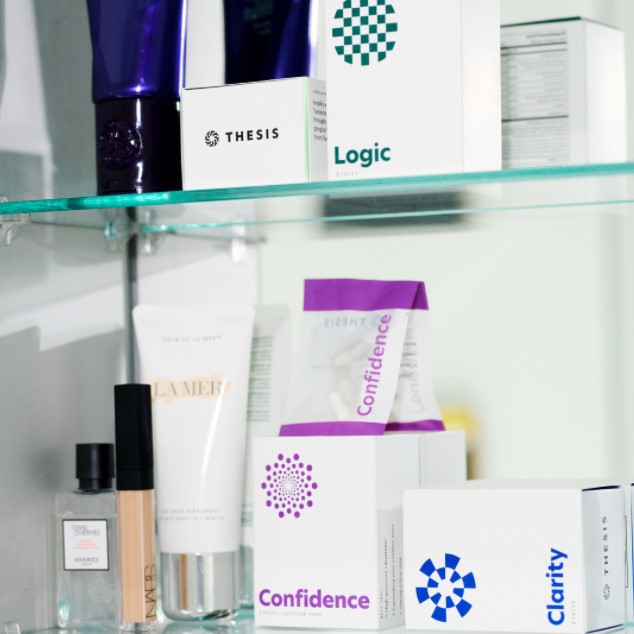
Thesis nootropics are designed for a number of different specific needs, including anyone who wants to focus better, have more energy, and maintain mental clarity. All in all, the products are specifically formulated to improve day to day life and target your specific needs .
Thesis Nootropics Side Effects

While Thesis nootropics are designed to enhance cognitive performance and provide a range of benefits, it’s important to be aware of the potential side effects that can occur. As with any supplement, individual reactions can vary, and some people may experience side effects while others may not.
Some of the potential side effects of Thesis nootropics include:
- Insomnia : Some nootropics contain caffeine or other stimulants that can disrupt sleep patterns and lead to difficulty falling asleep or staying asleep.
- Blurry vision : Certain nootropics, such as those containing alpha GPC, have been linked to temporary blurry vision.
- High blood pressure : Stimulant-based nootropics can increase blood pressure, which can be dangerous for people with hypertension or other heart conditions.
- Fast heart rate : Similarly, stimulants can also increase heart rate, leading to palpitations or a rapid pulse.
- Circulation problem s: Certain nootropics, such as vinpocetine, can affect blood flow and circulation, leading to issues like dizziness, nausea, or headaches.
- Addiction : Some nootropics, such as those containing racetams, have been associated with the potential for addiction or dependence if used long-term.
It’s important to remember that not all nootropics will produce these side effects, and the severity of any reactions will depend on individual factors such as dosage, duration of use, and underlying health conditions. However, it’s always wise to discuss any potential risks with a healthcare professional before starting any new supplement regimen.
Additionally, it’s important to follow dosage instructions carefully and not to exceed recommended amounts, as this can increase the risk of side effects. By being mindful of potential risks and using nootropics responsibly, users can reap the benefits of these supplements without experiencing adverse effects.
Thesis Nootropics Reviews: What Do Customers Think?
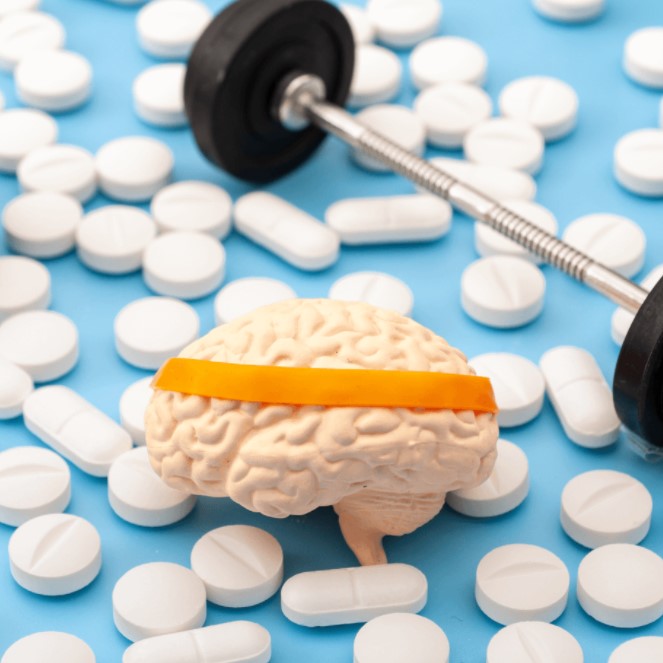
At this point in our Thesis nootropics review, it’s time to turn to what customers are saying. So, we sourced testimonials from the brand’s website, Reddit, and ZenMasterWellness. And spoiler alert, the Thesis nootropics reviews we came across have nothing but good things to say.
On takethesis.com , the brand earns 4.4/5 stars out of 7,956 reviews. One patron describes their particular blend as the perfect alternative to prescription meds :
“ I have been off stimulants for months now and these formulas are far superior. My husband and daughter both noticed the change and said I have been more productive, focused, less anxious, and more “thinking outside the box”. I have tried for years to get off stims and nothing would work .”
On Reddit, many reviewers share similar sentiments about how effective the products are. One buyer shares that they tried tons of different nootropics on the market, and Thesis stands out amongst the crowd .
On ZenMasterWellness, one reviewer states that their blend provided the exact results they were looking for :
“ They offer notable improvements to how well I’m able to focus, stay on task, and grind when it’s time to grind. In practice, this usually looks like a clearer mind and an improved ability to just… chill. With the Clarity and Creativity blends, in particular, I just feel leveled out .”
Backed by clinical trials and real customer experiences, Thesis stands out in the world of nootropics and supplements. The personalized selections prove effective, while the quality ingredients live up to expectations.
Is Thesis Nootropics Legit?
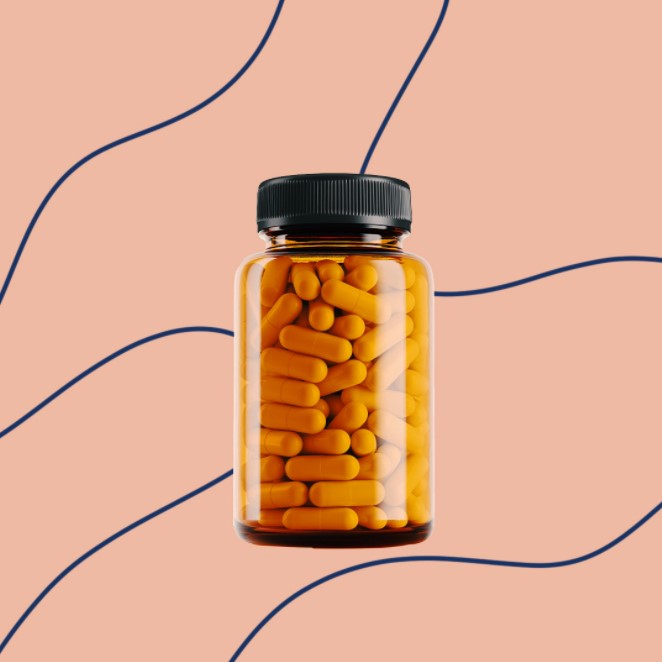
If you’re wondering if this brand offers products that are too good to be true, this Thesis nootropics review is here to say that it is the real deal .
The brand is backed by numerous clinical trials, which highlight how 86% of customers reported improvements in a wide range of cognitive challenges, while 89% noticed an improvement in their ability to reduce stress and maintain energy.
Is Thesis Nootropics Worth It?
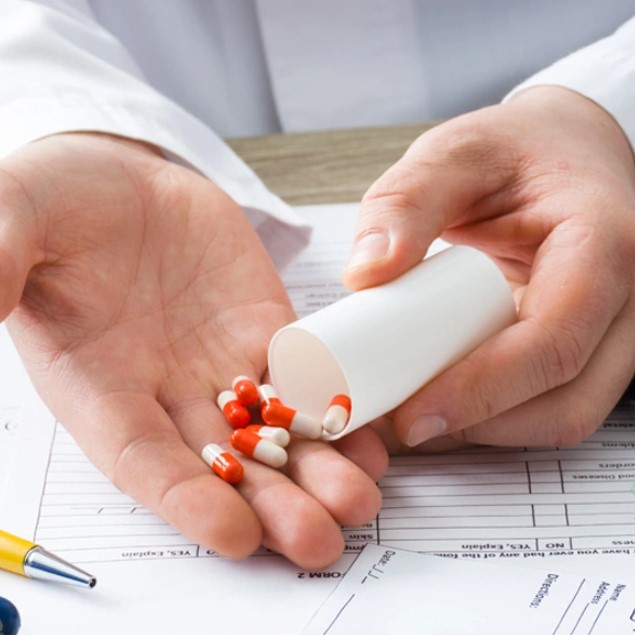
Thesis is an appealing choice in the world of nootropics because it provides a completely customized selection based on your needs and goals. Plus, the ingredients are potent and ensure the best effects—and you only end up paying for the benefits you actually need.
With that in mind, this Thesis nootropics review deems the brand worth the try.
Alternatives
Here are some alternatives to Thesis Nootropics that you might find interesting:
- Mind Lab Pro – This nootropic supplement is designed to improve cognitive function and mental performance. It contains 11 ingredients that work together to enhance memory, focus, and overall brain health.
- Thorne Supplements : If you’re looking for high-quality, science-based supplements, Thorne is a great choice. Their products are designed with the latest research in mind and are rigorously tested for quality and purity. Some of their popular offerings include multivitamins, protein powders, and omega-3 supplements.
- WeAreFeel Supplements : WeAreFeel is a supplement brand that offers a variety of products designed to support different aspects of your health. Their supplements are vegan-friendly and free from artificial colors, flavors, and preservatives. Some of their popular offerings include multivitamins, probiotics, and omega-3 supplements.
- Neuro Gum : If you’re looking for a quick and easy way to boost your focus and energy levels, Neuro Gum is a great option. This gum is infused with caffeine and other natural ingredients that can help improve mental clarity and alertness. Plus, it’s sugar-free and comes in a variety of delicious flavors.
- Neuriva Plus : Neuriva Plus is a brain supplement that’s designed to improve memory, focus, and cognitive performance. It contains a blend of natural ingredients, including coffee fruit extract and phosphatidylserine, that have been shown to support brain health. If you’re looking for a natural way to boost your cognitive function, Neuriva Plus is worth considering.
Thesis Nootropics Promotions & Discounts
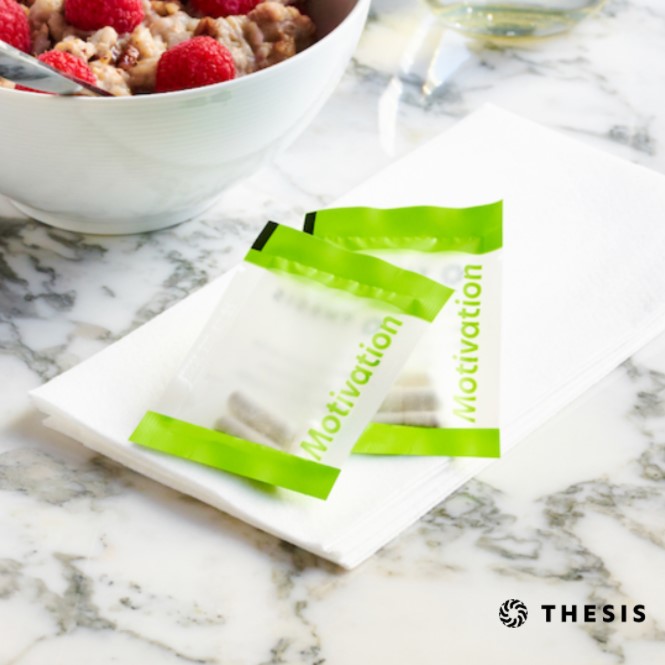
There aren’t currently any Thesis promos or discounts available. That being said, if you subscribe for recurring shipments of your recommended products, you’ll save $40 monthly .
Where to Buy Thesis Nootropics

At the time of this Thesis nootropics review, the products are exclusively available on the brand’s website, takethesis.com .
Is Thesis Nootropics vegan?
Thesis nootropics are made with only vegan ingredients . That being said, while the brand has taken precautions to protect against cross contamination, the products are not certified vegan.
Is Thesis Nootropics gluten-free?
On top of being vegan, Thesis products are made without gluten, eggs, or nuts . Again, while the brand strives to protect users against cross contamination, the products are not certified gluten free.
What is Thesis Nootropics’ Shipping Policy?
If you’re anxiously awaiting your order from this Thesis nootropics review, you’ll be happy to hear that the company offers speedy shipping, sending orders out within 1 business day. After that, packages should arrive within only 1-3 business days . Costs are calculated at checkout.
At this time, Thesis is not able to offer international shipping. This Thesis nootropics review recommends following the brand on social media and signing up for the newsletter to stay up to date with shipping policies.
What is Thesis Nootropics’ Return Policy?
If you find that your Thesis formula isn’t working out, the company requests that you contact them to make changes and adjustments to ensure you are able to receive the proper help.
If you would still like to make a return, follow these simple steps for a refund:
- Submit your refund request
- Ship the items back within 30 days of the original delivery
- Send an email with your tracking number to the brand
- Return any remaining product in their original packaging to:
Thesis Returns 902 Broadway
6th Floor New York, NY
Once your return has been received, a refund will be processed and email confirmation will be sent. It’s also important to note that the brand can only refund one month’s supply per customer and return shipping is the customer’s responsibility.
How to Contact Thesis Nootropics
We hope you enjoyed this Thesis nootropics review! If you have any further questions about the brand or its products, you can contact them using the following methods:
- Call 1 (646) 647-3599
- Email [email protected]
902 Broadway Floor 6 New York, NY 10010
If you’re looking for other ways to boost your productivity via supplements, check out these other brands we’ve reviewed:
Thorne Supplements Review
WeAreFeel Supplements Review
Neuro Gum Review
Neuriva Plus Review
Our team is dedicated to finding and telling you more about the web’s best products. If you purchase through our links, we may receive a commission. Our editorial team is independent.
Ask the community or leave a comment
Customer reviews, leave a review, ask the community or leave a comment cancel reply.
Your email address will not be published. Required fields are marked *
This field is required
This field is required Please use a valid email
Save my name, email, and website in this browser for the next time I comment.
You may also be interested in

Alo Yoga Review
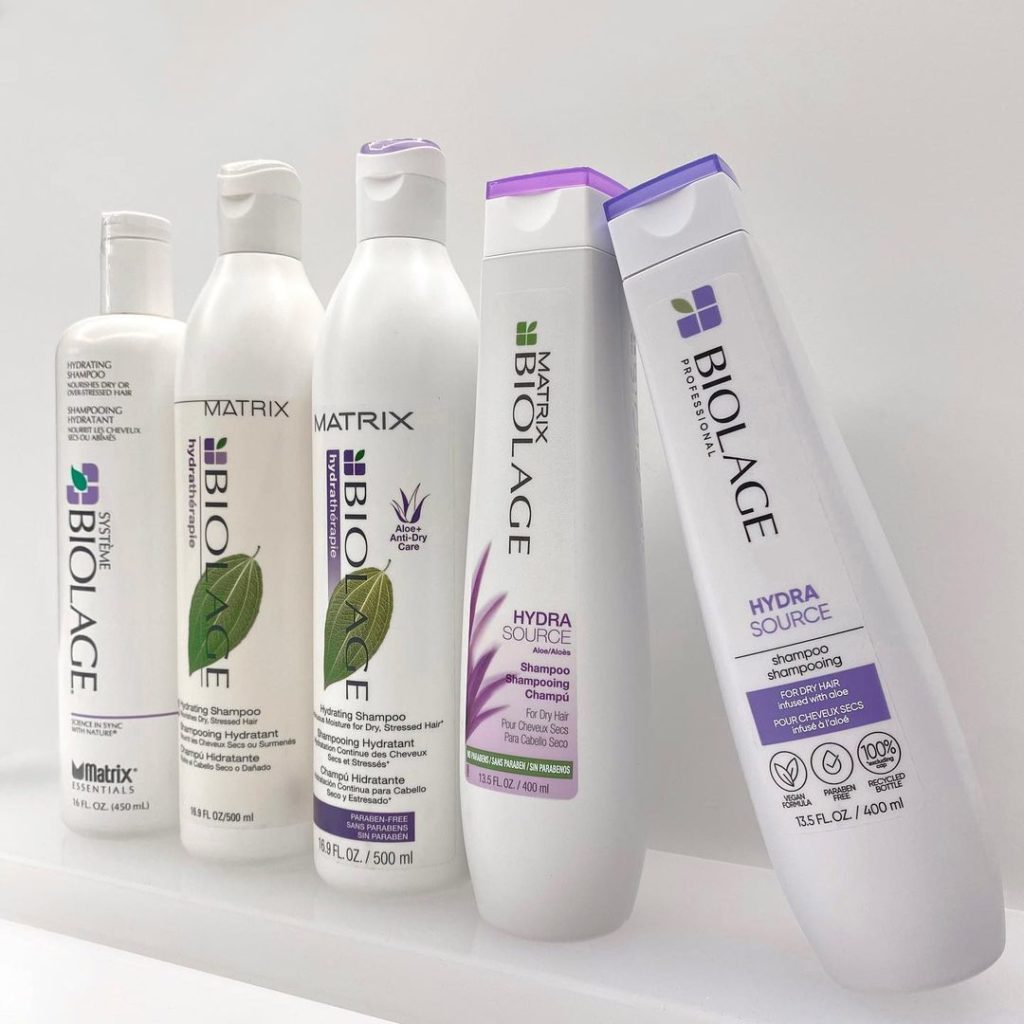
Biolage Review

Rothys vs Tieks Shoes Review
What Is Thesis?
How does it work, thesis nootropics benefits, thesis blend breakdown, side effects, who should take it, who shouldn't take it, where can you buy it, other user reviews, how does thesis compare to other supplements, our verdict on thesis nootropics.
Trending Now!
- Supplements >
- Nootropics >
- ThesIs Nootropics Review
Thesis Nootropics Review (2024) Is It Worth The Hype?

As a fitness coach, I've seen the impact of high-quality nootropic supplements on motivation and concentration during workouts.
Teaming up with my dietitian and 12 clients, we documented the significant cognitive benefits and general effects of Thesis over a period of four weeks.
Does it genuinely fulfill its promise of enhancing your mental performance and focus?
Before trying out the supplement, keep reading and find out if it's right for your mental wellness needs.
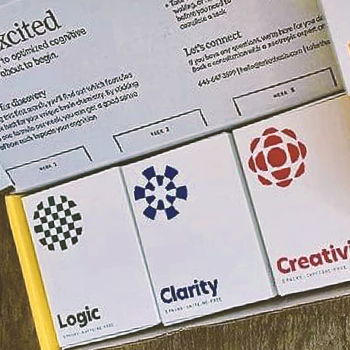
Thesis is a stack of supplements that aims to improve cognitive function, mental stamina, mood, and overall mental energy levels.
Thesis nootropics' energy formula claims to boost energy levels while catering to individuals following a certified gluten-free diet, promoting positive habits and supporting nerve health.
What's particularly interesting about purchasing this stack is the Thesis algorithm.
It’s a set of questions that assess your personal needs to create a bespoke starter kit.
More on this shortly.
As a result, you get a recommendation from a couple of their products to provide personalized blends for nootropics.
Let’s learn more about how Thesis supplements work with your brain health.
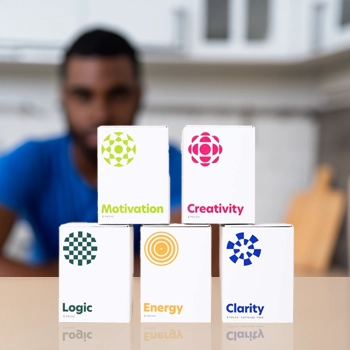
Thesis Nootropics
Rated With Total Shape's Scoring System

The Thesis experience begins with a questionnaire to assess your needs and goals, like improved physical and mental energy.
Based on your responses, the algorithm will recommend different Thesis blends to help you achieve your goals.
After going through the quiz, you get a recommended Thesis starter kit.
The five different products Thesis then recommends claim to work similarly to smart drugs by boosting your cognitive function and mood.
But unlike prescription medications, Thesis uses natural ingredients like vitamins, amino acids, minerals, and herbs.
“Nootropics, a greek word meaning 'Towards the Mind', are compounds that are both (1) neurologically active and (2) directly or indirectly enhance cognitive potential via increased capabilities (ie. reflexes), state of well-being, or learning potential.” - Kamal Patel, MPH, MBA at Examine.com
Once you are a Thesis customer, you can also set up a meeting with a Thesis coach to review your stack and the effects you are looking for and experiencing.
But does that make Thesis legit?
Let’s see what our detailed clinical research reveals.
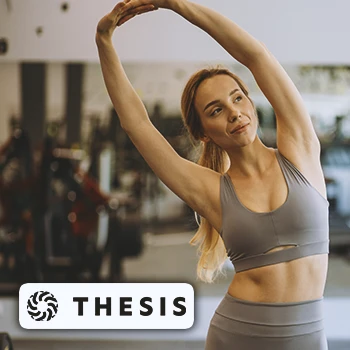
The first thing that we got our testing team to do is to go through a full week of keeping an hourly journal to self-evaluate their mood, concentration, and cognitive function.
Then we put them through three weeks of taking their Thesis recommended stack and got them all to keep their hourly journaling going.
The first thing we noted was that the energy blend and creativity formula seemed to give our clients a good boost in brain performance.
And the folks that took the motivation blend a few hours before heading to the gym also found they were more focused on their workouts.
However, the majority of our test group highlighted that the effects seemed to wear off after about 4–5 hours.
We also noted that the logic formula didn’t provide a huge benefit, which could be down to a lack of a proven formula.
We also found that the Thesis nootropics cost can mount up if you want to stack a few of them.
- Allows you to combine different product formulas for personal goals
- Provides support from coaches to help you refine your stack
- Positive impacts on mood and concentration levels
- Some of the ingredients are not supported by reliable clinical trials
- You may need to swallow quite a few capsules, depending on your particular blend

Thesis Nootropics offers a unique blend of ingredients that target thesis energy, thesis creativity, cellular function, and even skin health, making it a notable contender in the supplement industry.
For this part of the Thesis supplements review, I got my dietitian to help out and analyze the Thesis formula for each of the products.
We also tested the effects with 12 clients to see whether the marketing hype lives up to expectations.
Let's have a more detailed look at the features and benefits of each blend.
Thesis Energy Benefits
The idea behind Thesis Energy is to help people clear brain fog and feel more mentally energized.
To verify this, we paid close attention to the journal entries our testing team made in the afternoons. This is typically when people feel a slump.
What we found was that folks who took this supplement after lunch gained some mental clarity.
But it seems like the effect wears off after about four hours, so you don’t gain an all-day effect like with other nootropics.
Key Ingredients:
- Choline: According to PubMed, this mineral may boost memory function and verbal fluency [ 1 ].
- L-Theanine: A controlled trial posted in Nutritional Neurosciences suggests that this amino acid can work well with caffeine to increase alertness without causing jitters [ 2 ].
- Caffeine: This stimulant can boost alertness, but you can get this from a morning coffee, so I’m not overly impressed that it’s added here [ 3 ].
Clarity Benefits
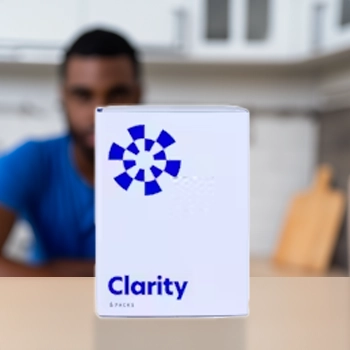
Thesis Clarity is another product that aims to improve neural communication and allow you to think more clearly and effectively.
Thesis Nootropics' clarity formula provides an extra boost of cognitive performance, targeting stress response reduction and improving sleep quality, all while delivering a healthy dose for enhanced mental clarity and improved ability.
We did note in our testing review that there seems to be an improvement in mental function for several hours after taking it.
But this also seemed to happen more with those testers who took the clarity and energy formula.
- 7,8-DHF: Studies have shown that Dihydroxyflavone can cross the blood-brain barrier and act as a neuroprotective ingredient [ 4 ].
- Alpha GPC: This is an ingredient that has been shown to protect against neurological decline [ 5 ].
- Lion’s Mane: This mushroom is common in nootropics and has been shown to improve mental performance and creativity [ 6 ].
Motivation Benefits
A large part of improving mental health comes down to how focused and motivated you are with daily tasks. Our clients who tested the Thesis Motivation noted that it seemed to help them remain more motivated during workouts.
But this doesn’t seem to happen if you take it in the morning and go to the gym later in the day. So you’d need to get your timing right.
- L-Phenylalanine: Research has shown that this ingredient can help with signs of depression and improve overall mood [ 7 ].
- Dynamine: Also known as Methylliberine, studies have highlighted that it can impact your mental well-being when combined with caffeine [ 8 ].
- Forskolin: The interesting thing about this herbal ingredient is that it can improve blood flow to the brain for better focus and motivation [ 9 ].
Logic Benefits
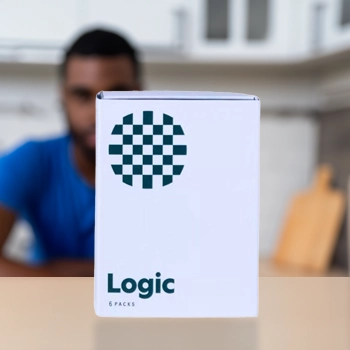
For this product, we looked at what our clients noted in their journals when they were at work or studying. While they did find a boost in focus, none of them noted that it helped improve verbal fluency or problem-solving skills.
- Ginkgo Biloba: This is a common ingredient in traditional medicine, but modern clinical trials have shown that it can help brain health through improved blood flow and anti-inflammatory properties [ 10 ].
- Ashwagandha: This herb can have a direct impact on stress and memory, allowing you to think clearly and effectively [ 11 ].
- Saffron: It’s the most expensive herb in the world, and studies have linked it to improved stress, mood, and cognitive capacity [ 12 ].
Creativity Benefits
A few of our clients tried the creativity blends, but this is one of the products where most of them didn’t report any significant improvements.
Combinations with other products above did positively impact mood and stress, but we couldn’t find any comments where our clients highlighted that they felt more creative in their work or any other creatively demanding context.
- Agmatine: This amino acid doesn’t just boost cognitive performance but may also help to protect brain cells against oxidative stress [ 13 ].
- Zembrin: Research has shown that this herb can impact both stress and anxiety, but there’s no specific evidence that it can help with creativity [ 14 ].
- Ginseng: This is a common ingredient in diet supplements as it can improve blood sugar levels, but that wouldn’t directly influence creativity [ 15 ].

We also asked all of our clients to provide any feedback they had on side effects related to the nootropic blends.
Overall, the majority of people found that it didn't cause any major issues.
We only noted that one person had a bit of a rash, which could have been a result of an allergic reaction to one of the ingredients.
We also found that it’s best not to take these capsules on an empty stomach. Ideally, take them within 20 minutes of eating a meal to avoid stomach upset.
Based on my personal experience, people who want to achieve a moderate boost in brain function may want to take nootropic supplements.
You would need to experiment with the timing as these capsules don’t provide effects for the entire day. But after about a week, you should be in a position to spread out the capsules for maximum effect.
You can also contact a coach directly for advice on timing. It's especially important when you have no prior experience in taking these supplements. However, a good starting point is to take the minimum and adjust from there.

Based on our own experience, people with high blood pressure or neurological diseases shouldn’t take Thesis natural nootropics to enhance cognitive function.
In such cases, it’s best to have a doctor review your detailed medical history and the nootropic ingredients for any potential side effects.
Our testing team didn’t note any improvements whatsoever, and when we specifically asked them after the trial, none of them said they saw a noticeable difference.
You can buy Thesis Nootropics directly from the company website.
We generally recommend avoiding third-party retailers to ensure that you always get the real product, so this is a positive highlight.
We placed two orders, and the package arrived within four days, which is about average for nootropic supplement companies.
One thing to point out on the Thesis supplements shipping policy is that currently, the company doesn’t offer international shipping.

We also had a look for other nootropic reviews online to see what users were saying.
“It gave me more energy. I have struggled with low energy and I felt like my old self again. I could get up & get things done.” - Laurie C., taketheseis.com
“After 1 month of using Energy, Creativity, Clarity and Logic pack, I do not note any difference in mindset. I opted for the non-caffeinated blends as I am not a big caffeine person to begin with so a caffeinated blend might show some improvement.” - Beefnug, Reddit
“I have been continuously nauseated every day using thesis packets. I have given it a week and a half and cannot handle the negative side effects. Disappointed.” - AdGroundbreaking5162, Reddit
Our Thesis scientific research suggests that it doesn’t compare well to our testing of three other products for improving cognitive function.
First of all, we looked at the results we have for Mind Lab Pro .
The one thing that stands out the most is that it seems to be effective for many more hours than Thesis, so the timing doesn’t become an issue.
The second one we compared is Onnit Alpha Brain . This nootropic supplement seems to provide a lot more focus and motivation, especially while you’re at the gym.
Compared to Gorilla Mind Smooth , Thesis doesn’t have the same effect on boosting energy and reducing stress.
Related Articles:
- Avantera Elevate Review
- Best Nootropics For Men
- Best Nootropics For Women
Is It Safe To Take Thesis Nootropics Every Day?
Yes, it is safe to take Thesis Nootropics every day. We found Thesis to be generally easy to process, but you need to look out for allergies to any of the ingredients. A good way to do this is to ask your physician for advice since they will know whether these ingredients are good for your health.
Does Thesis Nootropics Contain Banned Ingredients?
No, Thesis Nootropics doesn’t contain any banned ingredients. All of the ingredients are based on minerals, amino acids, and herbs that won’t cause a positive drug test result.
Based on our feedback from a nutritionist and the test results with 12 clients, we don't recommend Thesis.
Not only do its effects wear off after a few hours, which makes timing your intake a problem, but it also burns a hole in your pocket for just a stack of three or four products.
Instead, I highly recommend one of the best nootropic brands we have tested so far: Mind Lab Pro .
Our results show that its effects last for most of the day and provide great clarity, energy, focus, and concentration, making it a favorite among clients of all age groups.
We Recommend This Instead
Mind Lab Pro
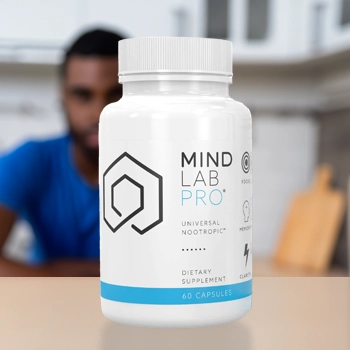
- Great combination of herbs and amino acids that work as a cognitive enhancer
- Added B vitamins to support red blood cell production and boosted energy levels
- Great feedback from users that it can help with relieving anxiety
- Get the BEST PRICE until the end of November
- The capsules are not the smallest ones to swallow
About The Author

James Cunningham is an author and dietary supplement connoisseur with a solid academic foundation, holding a BSc in Sport & Exercise Science from the University of Hertfordshire. Specializing in Performance Psychology, his expertise is backed by both rigorous study and practical experience.
As an author, James is committed to guiding his readers towards optimal health and performance, providing actionable insights and strategies through his writings.

You May Also Like

Write a Reply or Comment Cancel reply
Your email address will not be published. Required fields are marked *
Rating 5 star 4 star 3 star 2 star 1 star
- Build Your Own Box
- Ingredients
blends tailored to your unique needs.
- Shop Blends
- Refer a Friend, Get $25
How can we help?
Month 1: what to expect, month 2+: what's next, quality control & manufacturing, subscriptions & shipping + orders, health & safety.
What are nootropics, and how do they work?
Nootropics are a class of compounds that enhance cognitive function by helping to promote neurotransmitter activity to support motivation, mood, memory, and focus. Some of the most widely consumed nootropics are caffeine and L-theanine, found in coffee and tea. Whether you’re looking to enhance your productivity, maintain mental sharpness, or improve working memory, nootropics can offer a range of benefits to support your cognitive goals.
How do we recommend nootropics?
We developed six unique nootropic blends designed to cater to different cognitive goals. Our quiz assesses various traits to pinpoint areas with the greatest potential for improvement (e.g., focus, energy, motivation, etc.). Based on your quiz results, we make recommendations to match you with the four blends we think you’ll experience the most benefits from. The Starter Kit contains four blends, designed for you to try a new blend each week, moving you closer to the blend that best complements your personal brain and goals.
Can I select my blends instead of getting a Starter Kit?
Yes. If you have a clear idea of which blend(s) you want to try, you can customize your next refill on the Build Your Box page. If you already took the quiz and want to adjust your blends but the order has already been processed, contact us right away at 646-647-3599 or email us at [email protected] so we can help.
Do you offer caffeine-free blends?
Yes! You can choose to receive a caffeine-free version by selecting the Caffeine-free toggle on the Build Your Box page. If you would like to make adjustments to your blends after taking the quiz, please email us at [email protected] so we can update your order to caffeine or caffeine-free. If you’ve already received the caffeinated blends and do not want the caffeine, you can simply remove the white capsule from each packet, which contains all the caffeine content within each blend.
Where can I find more information on each ingredient?
If you want to learn more about the science behind each ingredient, check out the Ingredients page on our website. To discuss the function or science behind our ingredients, speak with any of our Coaches by calling us at 646-647-3599 or emailing us at [email protected].
Can I open the capsules and pour them into water?
You can — but we don’t recommend it. We encapsulate the ingredients because they have a strong, unpleasant taste. If you have a hard time swallowing capsules, it is perfectly safe to mix the contents into a smoothie, juice, or flavored drink to help mask the taste.
I want to try before I buy. Do you offer free samples?
We don’t offer free samples. However, if you aren’t happy with Thesis, we will offer a refund within 30 days of your first delivery.
How does the Starter Kit work?
The Thesis Starter Kit introduces you to four unique blends, each designed to be tested over one week, helping you discover which blend best aligns with your neurochemistry and goals. You can begin your Starter Kit journey with any blend. Start by taking one full packet each morning for six consecutive days, followed by one day off, before moving on to the next blend. It's important to monitor how each blend affects you, tracking changes across traits like memory, alertness, mood, and productivity. At the end of the four weeks, the goal is to identify the one or two blends that benefited you the most. For subscriptions, remember to customize your next box through your Thesis Account before your next shipment. If you opted for a one-time purchase, you can select your preferred blends for your next order by visiting the Build Your Box page.
Should I take Thesis blends with food or on an empty stomach?
We recommend taking Thesis blends on an empty stomach to maximize the effects and absorption of the ingredients. However, if you have a sensitive stomach, your blends can be taken with a meal or light snack to make them more tolerable.
Can I still drink coffee?
Yes. For most Thesis users, you can continue to enjoy coffee even if you’re taking our caffeinated blends. Keep in mind, that our caffeinated blends contain 100 mg of caffeine and 200 mg of L-theanine, which is roughly equivalent to a cup of coffee, so depending on your sensitivity, you may want to monitor your total caffeine intake. Many Thesis users have even reported that their coffee consumption has gone down and become less reliant on coffee to energize them throughout the day. If you’ve received the caffeinated Thesis blends and do not want the additional caffeine, you can simply remove the white capsule from each packet, which contains all caffeine content within each blend.
How long until I start seeing results?
Many Thesis users will begin to notice the initial effects within 60 to 90 minutes after taking it. But depending on your body's metabolism and your familiarity with nootropics, it could take a few days of consistent use for the full effects to ramp up. So, patience is key! For long-term improvements in cognitive performance, consistent use is crucial. Once you've found the blend that best suits your brain chemistry, give it about 4-6 weeks to gauge the true changes and benefits.
Are there any known side effects?
Experiencing side effects like headaches, nausea, anxiety, or agitation can occur. If discomfort arises it's important to listen to your body; this could mean adjusting the dosage, spacing out the intake, or switching to another blend. Identifying what doesn't work is just as important as finding what does. It’s important to remember that everyone responds differently to supplements, so we recommend you discuss any effects you may experience with your doctor. If you would like more information, contact us at 646-647-3599 or email us at [email protected] to speak with one of our Thesis Coaches.
What happens if I don’t like one or more of my blends?
Discovering that a blend isn't right for you is normal and a positive step forward! It's all part of the optimization process to help you pinpoint the nootropic blend(s) that best enhances your cognitive function. If you aren’t noticing any effects from a blend after taking it for six consecutive days, it's a sign to adjust your selection for the next month. If you need more guidance on assessing the effectiveness of each blend, our Thesis Coaches can provide recommendations and tools to make this process easier. Give us a call at 646-647-3599 or send us an email to [email protected].
Do I need to take all of the capsules in a packet?
While the capsules in each packet are based on dosages shown to be effective, we understand that everyone's body reacts differently. The nootropic ingredients are evenly distributed across the brown capsules, allowing you to adjust your dosage by adding or removing these capsules. The white capsule in each packet only contains caffeine and L-theanine, giving you more flexibility on what you need each day. If you’re interested in increasing the dosage beyond the recommended capsules in each packet, please consult with one of our Coaches by calling us at 646-647-3599 or emailing us at [email protected].
I finished my Starter Kit. What do I do now?
Congrats! Finishing your Starter Kit is a significant milestone towards helping to improve your cognitive performance. The next step is selecting the one or two blends that benefited you the most, even if the changes were subtle. Now, you can start fine-tuning your experience, using your blends based on what you need that day (e.g., mental clarity, energy, motivation, and so on). During the second month, continue to pay attention to the changes in your cognitive performance and well-being. Before long, you'll find yourself settling into a rhythm that feels right.
Can I try the blends that were not included in my Starter Kit?
Absolutely! We have six unique nootropic blends, so if you’re interested in trying the remaining blends that weren’t in your Starter Kit, we encourage you to keep experimenting. If you choose to go with a new blend, the same recommendations apply: use the blend for six consecutive days to allow your brain and body to adapt to these new ingredients before determining its effect.
How often should I take my blends?
Thesis is designed for daily use–with intentional rest days built in. Incorporating 1-2 days off per week can prevent building up a tolerance to your blends and allows you to reassess your baseline. If you have a very busy week, you can take your blends all seven days; just adjust for next week by taking two rest days.
What happens if I take more than the recommended dose?
Although our blends were formulated to be taken once daily, we understand some days require extra support. If you need to extend past the typical 4-6 hour half-life, taking a second packet four hours after the first is safe. Of course, everybody responds to supplements differently, so please listen to your body. Please don’t exceed two packets in any 24-hour period. Additionally, be mindful of taking a packet within eight hours of your planned bedtime as disturbing your sleep is counterproductive to your cognitive health.
Can I take more than 1 blend per day?
Yes. While Thesis aims to identify your single optimal blend, we know for some, two blends might be needed to cater to different requirements throughout the day. If you choose to take two blends in a day, we recommend spacing them at least four hours apart to prevent any potential interactions or absorption issues. For advice on combining blends safely and effectively, please speak with one of our Coaches who can help tailor recommendations to your specific needs and goals.
What are the long-term effects?
In clinical trials, none of our ingredients show negative long-term effects. Many nootropics become more effective over time due to the compounding effects on brain health and the structural integrity of neurons. Early research studying the long-term effects of certain nootropics ingredients shows improvement in cognitive traits like memory retention, cognitive flexibility, and focus following persistent use.
Do benefits continue even after I stop taking my blends?
One of the remarkable benefits of nootropics is the neuroprotective effects that promote the long-term health of our brains. For example, by increasing Brain-Derived Neurotrophic Factor (BDNF) in the brain, nootropics promote adaptability to improve traits such as attention, learning, and emotional regulation–when paired with deliberate effort, such as challenging yourself with complex puzzles, practicing a skill, or trying to remember information without looking it up. For a comprehensive overview of our ingredients, their respective benefits, and the latest clinical research, please visit the Ingredients page on our website.
Will I become reliant on taking my blends?
No, you won’t develop a dependency on any of our blends. Because nootropics are non-habit-forming compounds, you have the flexibility to pause or stop taking them without experiencing unwanted side effects.
Where do you source your ingredients from?
Our ingredients are globally sourced to ensure we're using the best available, but all our products are manufactured right here in the U.S. We utilize a combination of natural and synthetic ingredients for consistency and control, like our lab-created caffeine, which reduces batch variability.
How do you test for purity and potency?
To guarantee each blend meets our high standards for purity and potency, we conduct regular third-party lab testing. Unlike many supplement brands, our blends contain minimal fillers and always use the most bioavailable form of active ingredients.
Do you have third-party testing?
We rely on third-party labs for detailed testing to ensure each ingredient and finished product matches our standards for concentration and purity. All of our products go through rigorous quality control testing, as well as batch-specific COAs (Certificate of Analysis) for all raw ingredients and finished goods, emphasizing our commitment to consistency and safety.
What is the shelf-life of your blends and how should they be stored?
Our blends have a two-year shelf life and maintain their efficacy when stored at room temperature.
Are your ingredients allergen-free and/or vegan?
All our ingredients are vegan and free from gluten, eggs, and nuts. While our manufacturing process is designed to minimize any cross-contamination, our facilities process other products, so we cannot offer certified vegan or gluten-free guarantees.
Are your blends FDA-approved?
In accordance with manufacturing practices in the United States, dietary supplements do not go through pre-market FDA approval. Thesis follows current Good Manufacturing Processes (cGMP), which are maintained by the FDA to ensure proper supplement manufacturing. FDA regulates everything from raw material selection to product safety to labeling. All of our ingredients are classified by the FDA as Generally Recognized as Safe (GRAS) or have undergone phase III clinical trials, which both establish measures of safety.
How does my subscription work?
At checkout, you have the option of selecting the subscription model priced at $79 or opting for a one-time purchase for $119. By selecting the subscription option, a new order will be shipped to your address every 28 days unless any adjustments have been made to your subscription in your Thesis Account . You can select or update your blends or reschedule your next order if you're traveling or have simply fallen behind on taking them and have a surplus of packets.
Can I pause my subscription?
We can't pause a subscription in perpetuity, but you can reschedule your next order to any date in the future. You can manage your subscription and delivery schedule by logging into your Thesis Account .
Can I cancel my subscription?
You have full control of your subscription with Thesis and can cancel at any point before your next order has been processed. You can do this by logging into your Thesis Account , selecting "Manage Subscription” in the “My Subscription” tab, and scrolling to the bottom of the page.
Do you offer refunds or returns?
Yes. If you are not 100% satisfied with your purchase, you may request a refund within 30 days of delivery of your first order. We’ll refund you for the full cost of the product, including shipping. Refunds apply to your first order only. For subsequent orders, you may reschedule, skip, or cancel at any time in your Thesis Account . If you have issues with subsequent orders, please contact us at [email protected], let us know what happened and we’ll see what we can do.
What are your shipping delivery times?
Once your order has been placed, our team will work on getting your order ready within 1-2 business days–excluding holidays and weekends. The estimated delivery window is between 3-7 business days. Expedited shipping methods are available for one-time purchases on our website, however, if you’re a Thesis subscriber and would like an expedited shipment, please email us at [email protected] or call 646-647-3599. For all standard and expedited shipping methods, orders placed on Friday after 12 PM ET will be processed on Monday to ship.
How can I track my order?
By logging into your Thesis Account and navigating to the Order History tab, you’ll be able to track your order by clicking on the order number. If you’re experiencing issues finding the tracking information, please contact us at [email protected] with your order number.
Why hasn’t my order tracking updated?
Movement on your tracking link can take up to 24 hours to update. If you continue to see no movement after 24 hours please contact us at [email protected] with your order number and we will look into it further.
Why does the DHL tracking show a different date from USPS tracking?
DHL tracking updates are based on USPS updates. In some cases, the DHL tracking will show a later delivery date initially and then update once USPS has a more accurate estimate. Additionally, DHL hands off the package to USPS in the last leg of delivery, so when this happens your order is often delivered within a couple of days.
Why does my tracking link show it was delivered, but I didn’t receive it?
Please check in and around your mailbox, or check with your neighbors to see if the package was mistakenly delivered to them. If you still can’t locate your package after 48 hours, please contact us at [email protected].
Do you ship internationally?
Due to complexities with various customs regulations, we don’t currently ship internationally. We do, however, ship to all 50 U.S. states and the five major territories (American Samoa, Guam, Northern Mariana Islands, Puerto Rico, and U.S. Virgin Islands).
Can I change my shipping address after placing my order?
We’ll do our best to make any updates to your order before it has left our fulfillment center. The fastest way to contact us is by calling 646-647-3599 between 10 am - 5 pm ET or sending us an email at [email protected], with your order number, original shipping address, and the new address you wish to change to.
Can I take Thesis while on antidepressants, stimulants, and non-stimulant medications?
Psychopharmaceutical medications, including antidepressants, stimulants, and non-stimulants, may interact with ingredients in Thesis, potentially leading to adverse or combinatorial effects. It’s important to speak with your primary medical provider before starting any new supplement or altering any course of medication. They will be able to provide the best advice regarding the safety of adding Thesis to your routine.
Are there any pre-existing conditions that make someone ineligible to take Thesis?
You should consult your primary medical provider before taking Thesis blends, especially if you are pregnant, planning to become pregnant, are breastfeeding, or have a history of any of the following: high blood pressure, heart disease, chest pains, stroke, seizures, high cholesterol, obesity, psychiatric conditions, if you smoke, or have a health problem that could be made worse by a change in diet or supplement routine.
Does Thesis replace my ADHD medication?
Our blends and many stimulant or non-stimulant medications will impact the same neurochemical systems (e.g., dopamine, norepinephrine, and serotonin) involved in mood, attention, energy, and focus. While Thesis may support cognitive function, it is not designed to treat, cure, or replace medication for ADHD or any other medical condition. Discuss with your healthcare provider for guidance tailored to your health needs.
Can I take Thesis if I’m under 18?
Our product is one of the most comprehensive nootropics systems on the market and our ingredients are backed by hundreds of clinical research papers. Unfortunately, the research conducted on these ingredients did not include participants who were under the age of 18. We advise against children taking our product and encourage you to consult a pediatric healthcare provider for advice tailored to minors.
Is it safe to take if I’m pregnant or breastfeeding?
Our product is one of the most comprehensive nootropics systems on the market and our ingredients are backed by hundreds of clinical research papers. Unfortunately, the research conducted on these ingredients did not include participants who were pregnant, nursing, or breastfeeding. For that reason, you should always consult your healthcare provider before starting any new supplement to ensure it is safe for you and your baby.
Can I use my HSA or FSA account to pay for Thesis?
Most FSA and HSA programs will cover the cost of prescription medication; however, since our supplements do not fall into the prescription category, you may not be eligible for reimbursement through your FSA or HSA program. Consult your HSA or FSA plan administrator to confirm which types of supplements, if any, are eligible for reimbursement under your specific plan.
Didn’t find what you were looking for? You can always call or email.
1-646-647-3599
Stop procrastinating
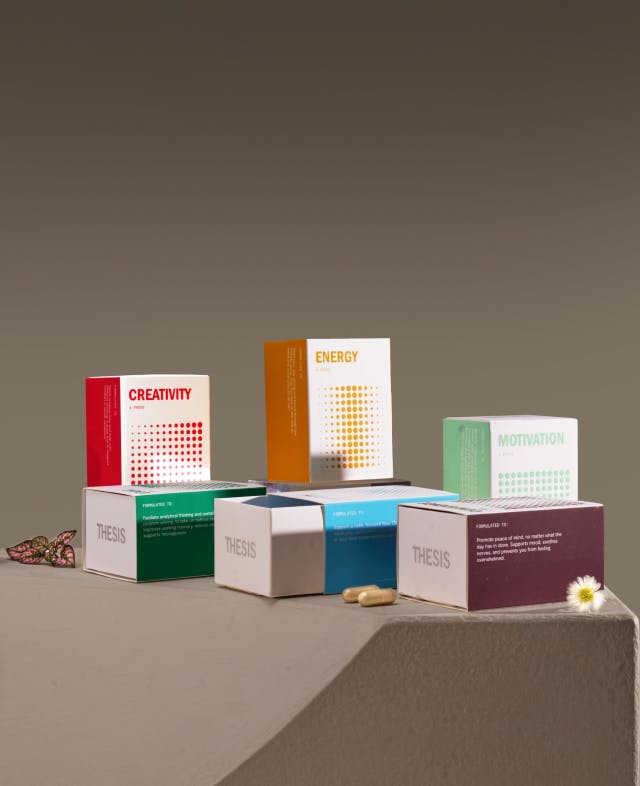
Stop Procrastinating
Nootropic formulas to activate every kind of brain.
For Your Workout
Muscle-building stacks
BCAAs for women
L-Citrulline supplements
Best testosterone booster
Nitric oxide supplements
Amino acid supplements
Weight Loss
Wegovy vs. Mounjaro
Hair Growth
Hair loss treatments for men
Laser caps for hair loss
Topical finasteride guide
Keeps vs. Hims
Face & Body
Men's anti-aging creams
Latisse guide
Brightening creams
IPL devices
Guide to online therapy
Therapy terminology guide
Preparing for your first session
Betterhelp vs. Talkspace
Supplements
Ashwagandha supplements
CBD for sleep
Saffron supplements
Amanita Muscaria gummies
Online Pharmacies
NMN supplements
Berberine supplements
CoQ10 supplements
NAD supplements
CBD for arthritis
Sexual health
ED treatments
Delay sprays
Phoenix ED device
Microbiome testing
At-home STD tests
Food sensitivity tests
DNA health testing
Anatomy Explorer
Skeletal system
Muscular system
Cardiovascular system
Digestive system
Nervous system
Respiratory system
Urinary system
Integumentary system
All Anatomy Systems
Thesis Nootropics Review
Thesis has a range of targeted nootropics you can combine to optimize your results. our team will help you decide which ones are right for you..

Daniel is a senior editor and writer at Innerbody Research. After receiving his bachelor’s degree in writing, he attended post-graduate studies at George Mason University and pursued a career in nutritional science.

Dr. Segar is a cardiologist at the Texas Heart Institute and a member of Innerbody Research's Medical Review Board.
In this Review
Nootropics in general offer the potential to improve cognitive abilities and regulate mood without the need for a prescription. And while more research is necessary, current data suggests that they consist of ingredients that are generally safe and effective for healthy adults. 35 However, Thesis isn’t the only provider of high-quality nootropics, nor do they offer especially low prices. In this review, we'll compare and contrast Thesis’ six formulas and see how they stack up against a growing field of competitors.
Our Findings
- You can feel most results within an hour
- Products are third-party-tested for purity
- All options available without stimulants
- Outstanding phone support
- Subscriptions include complimentary wellness coaching
- Free shipping on all orders
- Use code INNERBODY for 10% off your first order
- Somewhat more expensive than competitors
- Up to four large pills per dose
Despite the somewhat high price, we recommend Thesis to anyone looking for a nootropic subscription that can be tailored to their specific needs. The formulas from Thesis provide tangible benefits with minimal ingredients, and each formula is available with or without caffeine. Thesis also offers stellar customer service and delivers their product in individually packed doses you can take just about anywhere.
Special Offer: Take 10% OFF with code INNERBODY
Why you should trust us
Over the past two decades, Innerbody Research has helped tens of millions of readers make more informed decisions about staying healthy and living healthier lifestyles. As nootropics have become more important players in the supplements landscape, we’ve taken a serious look at the key players to see which ones are worthwhile.
Thesis exists in a class of nootropics that combines multiple nootropic ingredients to achieve specific goals. We’ve spent hundreds of hours researching and testing various nootropics, including both individual ingredients and combinations like Thesis offers. In researching Thesis and their competitors, our team has read more than 100 clinical studies examining the efficacy and safety of nootropic ingredients, and we’ve combined all of that knowledge with our experiences to create this review.
If you're curious about our team's experience using Thesis nootropics and wondering how the products will arrive at your door, we made this handy, 5-minute video summarizing those details:
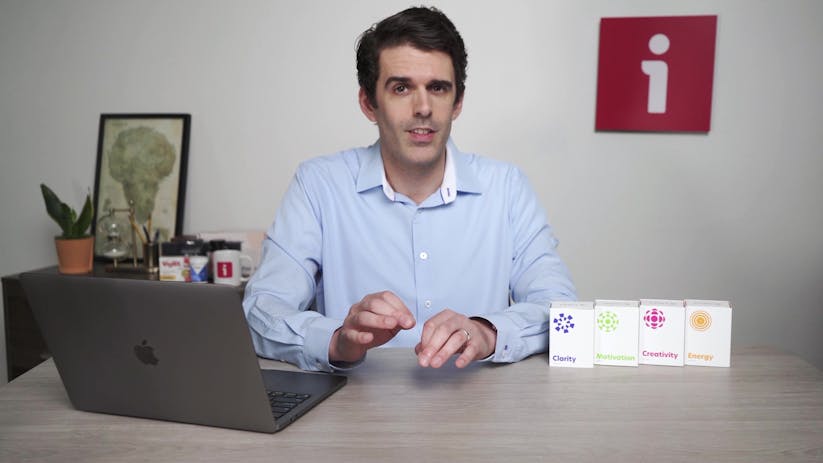
Additionally, like all health-related content on this website, this review was thoroughly vetted by one or more members of our Medical Review Board for accuracy.
How we evaluated Thesis
To evaluate Thesis, we examined the extensive research available on each ingredient the company uses and compared them to a growing marketplace of nootropics, many of which our testing team has tried over the past few years. Specifically, we assessed how effectively Thesis' formulas work, as well as their safety, cost, and the convenience of acquiring and taking them.
Ultimately, we found Thesis to be one of the more reliable companies in terms of product quality and customer care, even if they are among the more expensive nootropic brands. For any nootropic, you’re looking to create a noticeable effect in brain performance, and altering anything to do with that sensitive chemistry likely warrants a fair investment. The bargain bin is not typically where you want to shop for mind-enhancing substances.
We’ll get into a more direct comparison between Thesis and their competitors a little later, and you’ll see that the balance between their price and overall value is quite reasonable. For now, let’s look at each criterion in more detail.
Effectiveness
Nootropic companies have a plethora of ingredients at their fingertips when they formulate their products. Some companies take a modern approach, focusing on the latest research into established Western medicines. Others look to the past, where ancient Chinese and Ayurvedic practices employed various botanicals to achieve cognitive effects. The best companies combine these approaches, using potentially beneficial ingredients that science supports.
Thesis takes this combined approach, employing just under three dozen ingredients from amino acids to ancient herbs across their six products. The company scores highly in effectiveness thanks to the ingredients they choose and the doses they offer for each, making it likely that you can notice their combined effects.
Individual results will vary due to everything from sleep patterns to diet, but most people should find benefits in at least one of Thesis' six formulas. Caffeinated formulas generally have more pronounced effects than stimulant-free versions, but the value of Thesis offering every formula with or without stimulants cannot be overstated.
One minor knock against Thesis is that, unlike some of their competitors, Thesis does not have a nootropic blend designed for improved sleep. Better sleep supports cognition and mood, so some companies offer formulas designed specifically for sleep promotion with ingredients like melatonin. That said, some of Thesis’ formulas contain lion’s mane or Zembrin (a branded form of Sceletium tortuosum that’s been shown to reduce anxiety and promote sleep). 2 3 And the amount of Zembrin used in Thesis’ Creativity and Confidence blends is the exact same amount used in these successful studies — 25mg.
Good nootropics are, unfortunately, a bit expensive. You can find less expensive options than Thesis, but their $79 monthly rate is right in the middle of what the market demands. You could also argue that the ingredient quality, customization options, and overall efficacy Thesis offers make it a superior value to many less expensive alternatives. Still, the price remains a sticking point for some.
Let's compare the monthly and per-dose costs with some of Thesis' closest competition. The prices below reflect subscription savings where available.
Three of the seven competitors included in the chart above are more expensive than Thesis, and another three are no more than $15 less expensive, revealing their generally average cost. Focus Factor — consistently our top budget pick among nootropics — costs much less than others in the field and includes many ingredients with associated clinical research. The downside is that increasing the number of ingredients (even when they seem to work) increases the odds of an adverse reaction.
TruBrain is the only company that truly compares to Thesis from a quality and variety standpoint. Other companies offer only one or two formulas, whereas Thesis and TruBrain each offer several more targeted products. TruBrain allows you to spend just $69 on your first jar when you subscribe — $10 less than Thesis — but that price shoots up to $119 every month after that, making Thesis the superior value.
When we consider the safety of any supplement, we look at available research into individual ingredients and compare those dosages with what the supplement offers. Whenever possible, we also test the product ourselves to observe its effects on us. Additionally, we look for safety standards in manufacturing that can provide added peace of mind, like third-party testing and compliance with the FDA’s Good Manufacturing Practices (GMP).
Thesis manufactures their products in GMP-compliant facilities and has third-party testing performed to assess the purity of each ingredient and formula. And the clinical research involving the lion's share of their ingredients reveals minimal risk profiles with few to no adverse effects reported. That said, ashwagandha isn’t safe for pregnant or breastfeeding individuals, and it can stimulate thyroid activity, so anyone with thyroid concerns (hyper- or hypothyroidism) or on medication to regulate thyroid function should be careful. 36 37
Thesis also limits their formulas to a handful of ingredients, which reduces the likelihood that any one of them would cause an adverse reaction. This is pretty typical of nootropics in Thesis’ class, but less expensive nootropics might try to convince you of their value by stuffing a single blend with several dozen components. That might increase the chances you feel some positive effect, but the side effect risk goes up by the same token.
Convenience
Our convenience rating considers various aspects of a user's experience. It usually starts with the quality of a product's website design and whether or not its pages are easy to navigate. We also consider the presence of subscription systems that make reordering easier and money-back guarantees that protect your investment. A company's customer service is another vital aspect of convenience, especially if you need questions answered. The quality of an FAQ section, the availability of representatives via chat or phone call, and the responsiveness to email inquiries all play a part here.
Our convenience rating is also informed by the steps required to actually take the product. Nootropics often consist of large capsules, and doses can contain anywhere from 1-7 capsules, which is awful for anyone with difficulty taking pills. Smaller capsules, fewer capsules per dose, and simple dosing schedules are ideal. Thesis’ capsule count varies per formula, ranging from 2-4 mid-size capsules you can take 30 minutes before you might want or need their effects.
To summarize some important aspects of nootropic company convenience, let's look at which companies have large capsule counts, good money-back guarantees, and subscription systems.
Thesis also provides a service that few other companies offer: free consultations with in-house nootropic coaches. These experts can help you figure out the best time to take specific Thesis formulas and guide your experience so you can tell whether or not they're working for you. Follow-up consultations are also free as long as you subscribe to the product.
What are nootropics?
Nootropic is a term most people use to refer to any non-prescription supplement that can boost brainpower. 4 The technical definition is a little more nuanced — encompassing prescription medications like Ritalin and Adderall — but the supplement industry has largely co-opted it to categorize the new class of non-prescription products. The word loosely translates from its Greek origins to mean mind-changing, and the majority of ingredients in a given nootropic seek to alter the brain’s cognitive abilities, as well as its governance of mood and energy.
Most nootropic supplements contain botanical ingredients, vitamins, minerals, and amino acids that boast at least some clinical research connecting them with improvements in any of the following:
Compared to their prescription cousins, nootropic supplements aren't particularly strong. Still, limited clinical research indicates a tangible benefit to taking them.
What is Thesis?
Thesis is a supplement company with a focus on nootropics. Their founders each had experiences growing up with what would today be considered learning disabilities, and they credit nootropics for changing their lives. They make six distinct nootropic formulas, each with a specific ingredient profile.
Thesis differentiates themselves from their competitors in several critical ways:
- They offer a starter kit containing a personalized combination of four blends.
- You have the option to remove caffeine by request from any formula.
- They provide some of the best phone support we've ever experienced.
- Their targeted formulas conform to changing needs.
By providing you with a mix of formulas, Thesis gives you the ability to enhance the aspects of your cognitive and emotional life that need it the most on any given day. Maybe you know you have low energy levels on Mondays and Wednesdays, so you can take the Energy formula on those days. Maybe you want to devote your weekends to artistic pursuits. You can use the Creativity blend for that. Or you might find that one of their six blends works well for you in any situation. In that case, you can adjust your order to receive only that formula.
Thesis' customer service — particularly over the phone — is outstanding. While many customers might find chat support more convenient, our testers rarely waited more than a minute to speak to someone, and Thesis employs phone operators who are extraordinarily knowledgeable about the product and nootropics in general. Their email support is fine, and their chat support often redirects to an email inquiry. But that phone support is some of the best our testing team has experienced.
Is Thesis safe?
Most of the ingredients that Thesis uses in their nootropics exhibit minimal side effects in clinical research, so there’s a good chance that Thesis' various formulas will be safe for most people. But Thesis has nearly three dozen ingredients in their catalog, and not all of them will be safe for all users, including those who are pregnant or breastfeeding. Of course, the most important thing you can do is talk to your doctor before taking Thesis.
The most common side effects to watch out for when you start taking Thesis nootropics include:
- Loss of appetite
- Digestive issues
Thesis advises discontinuing their nootropics if you experience persistent headaches or an upset stomach.
Some Thesis products may present contraindications with certain prescription medicines. For example, ashwagandha has been shown to normalize thyroid hormone levels in people with hypothyroidism. 5 This has led some to believe that it could conversely cause thyrotoxicity in people with hyperthyroidism, though it’s worth noting that the study in question employed double the highest ashwagandha dose you’ll find in Thesis nootropics — the study used 600mg, and the ashwagandha dose in Thesis’ Creativity is 300mg.
Still, this should make abundantly clear the case for speaking with your doctor prior to taking Thesis. This is especially true considering the lack of research into the specific ingredient combinations you’ll find in Thesis products. There is also very little research looking into the risks of combining nootropic supplements with prescription stimulants such as Ritalin, Adderall, or Vyvanse.
Some side effects, such as jitteriness, can be attributed to the caffeine in Thesis formulas. The fact that you can elect to remove caffeine from any formula expands the company’s reach to anyone with caffeine sensitivities and those who really don’t want to give up their morning cup of coffee. If you want caffeine in your Thesis formula, we recommend trying it without having had any coffee first, so you can see how it affects you.
Insider Tip: If you’re not sure whether to get your formula with or without caffeine, we recommend getting it with caffeine. Thesis isolates the included caffeine in a single capsule separate from other ingredients. Caffeinated formulas cost the same as uncaffeinated ones, and you can always elect not to take the caffeine capsule (the smallest capsule in any formula, containing a white powder).
What are the ingredients in Thesis?
Thesis uses an impressive set of ingredients, many of which have been part of respectable clinical research. Not all of the effects they hope these ingredients provide have been proven with sufficient statistical significance or over multiple studies in different populations, but what we do know strongly suggests efficacy.
Here's a look at several Thesis ingredients that have encouraging research behind them:
Several studies on mice show that dihydrohonokiol-B (DHH-B) has potent anxiolytic effects. 6 That means it may be able to help combat anxiety. However, we can’t say this for sure since there haven’t been any studies conducted on humans yet, so any potential benefits are speculative at this time. 25 Converting the successful dose used in mice (1mg) to the equivalent human amount (4.86 mg) is about half the amount used in Thesis’ Confidence (10mg). 6
In numerous studies, ashwagandha has been shown to reduce stress and anxiety. 32 Thesis uses a branded KSM-66 ashwagandha, which has a high standardized count of withanolides — the component of ashwagandha responsible for its positive effects. 33 This ensures both efficacy and consistency from doses that align with those used in successful studies.
While every formula is different, you'll notice that each contains caffeine and L-theanine. The nootropic properties of caffeine are well established. 19 L-theanine — a non-stimulant derived from green tea — has been shown to smooth out the jittery effects of caffeine. You can easily have caffeine removed from any Thesis formula for no extra cost, which is unique in the nootropic market. The L-theanine will remain, as it has its own set of cognitive benefits in addition to its ability to tame caffeine. 20
Saffron offers multiple benefits, including increased levels of dopamine and glutamate, that are dose-dependent. Human studies have also shown positive effects on depression symptoms. Thesis’ Confidence uses 28mg, which is 2mg less than what was used in many of the studies on saffron’s antidepressant effects. However, one study did find success with as little as 15mg. 7
A review of more than 120 scientific articles looking into the cognitive effects of phosphatidylserine concluded that it “safely slows, halts, or reverses biochemical alterations and structural deterioration in nerve cells.” The study goes on to say that it “supports human cognitive functions, including the formation of short-term memory, the consolidation of long-term memory, the ability to create new memories, the ability to retrieve memories, the ability to learn and recall information, the ability to focus attention and concentrate, the ability to reason and solve problems, language skills, and the ability to communicate.” 34
Derived from a South African plant, Zembrin appears to provide cognitive and anti-anxiety effects as demonstrated in clinical studies on human participants that used the same 25mg dose found in Thesis Creativity and Confidence. 8
Synapsa is a patented form of Bacopa extract, a traditional Ayurvedic memory enhancer. Studies on humans resulted in statistically significant improvements in cognitive tests. The study used 150mg twice daily (300mg total), which is only 20mg less than the 320mg used in Thesis’ Logic. 9
7,8 DHF is a small molecular TrkB agonist that can easily cross the blood-brain barrier. It can increase brain-derived neurotrophic factor (BDNF), a protein that improves neuroplasticity, learning, and memory. BDNF deficiencies are connected to numerous cognitive ailments as well. However, no human studies have been conducted. 26 In mice, 7,8 DHF appears to enhance spatial memory. When converting the effective dose for mice to humans, Thesis’ Clarity offers roughly 6mg more (about 24mg compared to Thesis’ 30mg). 27
Choline is a precursor to acetylcholine, a powerful neurotransmitter in the peripheral, autonomic, and enteric nervous systems. 10 One study on older adult human participants found that taking 187-399mg per day of choline reduced the risk of low cognitive functioning by nearly 50% compared to an intake under 187mg per day. 28 The CDP choline content in Thesis’ Energy is 300mg.
A 2010 clinical study on 485 older adult (over 55 years old) subjects found that 900mg per day of DHA improved memory and learning in those with age-related cognitive decline. 11 And another study in healthy adults 18-90 years old found that 580mg per day helped improve memory. 29 Unfortunately, the amounts used in many studies to improve cognitive function are quite a bit more than the 200mg (which is DHA and L-lysine combined) found in Thesis’ Logic.
Like choline, Alpha-GPC acts as an effective acetylcholine precursor. Studies also show that supplementation with Alpha-GPC can stave off exercise-induced reductions in choline levels. The effective amount used in the mentioned study is 200mg, which is less than half of what you’ll find in Thesis’ Clarity (500mg). 12
In addition to being an effective treatment for neuropathic pain, agmatine appears to have potent effects as an antidepressant. A five-year safety case report study concluded that there are no long-term side effect risks. Thesis’ Creativity only contains 250mg, which is well below the amount tolerated by study participants (2.67g per day). 13
Research into epicatechin indicates that it can enhance cerebral blood flow, delivering more oxygen to the brain to ensure it operates at its highest efficiency. The most effective dose for cognitive benefits appears to be over 50mg per day, and Thesis’ Clarity contains 278mg. 14
Lion's mane has been shown to increase nerve growth factor and promote neurite outgrowth of specific neural cells. It's a safe and reliable neurotrophic, but studies have debunked claims of neuroprotective properties. 15 A very small study of only 41 participants found that 1.8g of Lion’s mane may reduce stress and improve cognitive performance. 30 Thesis’ Clarity contains 500mg of Lion’s mane.
Hyperphenylalaninemia, a severe deficiency in phenylalanine, results in reduced dopamine, serotonin, and noradrenaline levels in the brain. 16 It can also alter cerebral myelin and protein synthesis. Supplementing with phenylalanine may provide neuroprotective benefits.
In a 2020 study, phenylalanine was a large component in a mix of seven amino acids that appeared to improve cognitive, psychological, and social functioning in middle-aged and older adults. Effective doses ranged from 0.85g to 1.7g of phenylalanine. A serving of Thesis’ Motivation contains 500mg, a bit under half of the average amount. 31
Examining the six formulas
Thesis has six nootropic formulas in their lineup (even though you can only choose up to four of them per box). Several other nootropic companies like TruBrain and BrainMD boast targeted lineups, as well, but Thesis is the Goldilocks of the bunch. Where BrainMD’s hyper-specific formulas rely on perhaps too few ingredients to make them worthwhile, many of TruBrain’s complex blends lack real specificity. With Thesis, you get targeted effects from numerous ingredients in moderately complex and reasonably priced combinations.
Each Thesis formula has a blend of ingredients that addresses specific needs. Their names give you a pretty big clue as to what the company intends each to do, but a closer look at their ingredients will help you understand how they achieve this.
Their formulas are:
Interestingly, the company thinks of its formulas as working well in pairs. You don't have to utilize them as such, but it's helpful to know how they view their most effective combinations. The following list details their purported combined benefits.
Enhances focus, eliminates brain fog, and lets thoughts flow naturally
Gets you going, keeps you going, and never crashes
Sparks new ideas, inspires extroversion, and revels in openness
You'll usually only take one formula at a time, but these pairs may act synergistically for specific personality types or cognitive needs.
Note that your first shipment of Thesis will contain six individually packed doses for four of these six formulas. Thesis chooses these formulas for you based on the results of an intake questionnaire, but you can make adjustments to that shipment on the customer dashboard before the shipment leaves their warehouse.
Let's take a closer look at each formula as they would appear with caffeine included.
Thesis Clarity
Thesis Clarity relies on 7,8 DHF (dihydroxyflavone), Alpha GPC (glycerylphosphorylcholine), epicatechin, and lion's mane to increase blood flow to the brain and stimulate the production of acetylcholine, a powerful neurotransmitter associated with learning, memory, and attention. It's particularly adept at cutting through brain fog.
Here's a look at Clarity's full ingredients list:
- Alpha GPC: 500mg
- Lion's Mane Mushroom: 500mg
- Camellia sinensis tea leaf: 278mg
- Dihydroxyflavone: 30mg
- Caffeine: 100mg
- L-Theanine: 200mg
One dose of Clarity consists of four capsules for the caffeinated formula and three capsules for the stimulant-free formula.
Thesis Logic
Thesis Logic contains triacetyluridine (TAU), which caters to the health of the entire central nervous system. It also uses phosphatidylserine to help facilitate communication between and protection of brain cells. 17
This is Logic’s complete ingredients list:
- Ginkgo Biloba: 160mg
- Theobromine: 100mg
- Phosphatidylserine: 400mg
- High DHA Algae: 200mg
- Triacetyluridine: 30mg
- Bacopa Monnieri: 320mg
One dose of Logic consists of four capsules for the caffeinated formula and three capsules for the stimulant-free formula.
Thesis Energy
Thesis Energy uses cysteine and tyrosine alongside caffeine to deliver a steady energy supply. It also includes TeaCrine, a branded form of theacrine, which partners with caffeine to affect adenosine signaling and prevent fatigue.
Here’s a full list of Energy’s ingredients:
- Citicoline: 300mg
- Mango leaf: 300mg
- Theacrine: 100mg
- N-Acetyl cysteine: 500mg
- Indian trumpet tree: 100mg
- N-Acetyl L-tyrosine: 300mg
One dose of Energy consists of three capsules for the caffeinated formula and two capsules for the stimulant-free formula.
Thesis Motivation
Blood flow and cellular function are at the core of Thesis Motivation . It employs artichoke extract, forskolin, and B12 to achieve these goals, with a healthy dose of phenylalanine for added focus and motivation.
Here's Motivation's full ingredients list:
- L-Phenylalanine: 500mg
- Methylliberine: 100mg
- Vitamin B12: 1000mcg
- Forskolin: 250mg
- Artichoke: 450mg
One dose of Motivation consists of three capsules for the caffeinated formula and two capsules for the stimulant-free formula.

Thesis Creativity
Thesis Creativity aims to realign you with your inspiration by removing barriers caused by stress, anxiety, and depression. It contains ingredients with powerful anxiolytic properties and 5-HT reuptake inhibition.
Here's a look at Creativity’s ingredients list:
- Alpha GPC: 150mg
- Agmatine sulfate: 250mg
- Panax ginseng: 200mg
- Ashwagandha root: 300mg
- Sceletium tortuosum : 25mg
One dose of Creativity consists of three capsules for the caffeinated formula and two capsules for the stimulant-free formula.
Thesis Confidence
Confidence is designed to work hand-in-hand with Creativity, using saffron and DHH-B from magnolia bark to increase dopamine levels and decrease anxiety. One fascinating ingredient in this formula is sage extract, which one 2021 study showed can help with various memory tasks, including name and face recognition. 18 It’s worth noting, though, that this study employed a 600mg dose compared to Thesis’ 333mg dose.
Here is Confidence's complete ingredients list:
- Saffron: 28mg
- Magnesium bisglycinate: 500mg
- Sage: 333mg
- Magnolia Bark: 10mg
- Ashwagandha leaf & root: 120mg
One dose of Confidence consists of three capsules for the caffeinated formula and two capsules for the stimulant-free formula.
Our Thesis testing results
Our testing team has tried every Thesis formula (with and without caffeine) to determine their short- and long-term efficacy, at least at an anecdotal level. Here’s a quick summary of our experiences:
Clarity provided our testers with a combined sense of focus and mental ease, though we mostly found that it worked best from its second day forward. The very first dose is mildly effective, but it served us better as a loading dose. We had no crash from either caffeinated or uncaffeinated formulas.
Our testers found that Logic provided a similar experience as Clarity, increasing focus and mental acuity, but the caffeinated formula caused a crash in two of our testers. By excluding the caffeine, that crash can be avoided, though that comes at the expense of some efficacy.
We were very curious about how this formula would perform without the caffeine. Our testers had a noticeable increase in energy without jitteriness about one hour after taking Energy. The caffeinated version caused the worst crash of all the formulas, but we were pleased to find that the formula without caffeine still provided noticeable energy increases without a crash.
Our testers are generally a pretty motivated bunch, so we might not have been the best group to evaluate this particular formula. The testers who felt an uptick in a sense of motivation described it more like a feeling of being able to follow through on tasks with less distraction and completion anxiety.
Creativity, like Clarity, seemed to work better for our testers on its second and third days than on its first. Testers generally described a sensation similar to Motivation but without the feeling of being “on rails,” as one tester put it. It seems to allow for more curiosity and exploration, though not necessarily as much follow-through.
This is Thesis’ newest formula, so fewer of our testers have tried it. Among those who have, one tester with a mild case of social anxiety described feeling a bit more relaxed among groups of people. Testers preferred this formula without caffeine.
Thesis pricing, shipping, and returns
Thesis keeps their price structure decidedly simple. This is refreshing, considering the range of nootropics they offer. You don't have to worry about one formula costing you more than another. However, Thesis doesn't make a non-subscription approach economically feasible.
Every Thesis shipment — including the starter pack — consists of four small boxes, each containing six doses of a single formula. That’s 24 doses/month.
Here's how it works:
- Any one-time purchase of a one-month supply, including the starter kit, costs $119.
- When you subscribe, that monthly cost is only $79.
- You can take an extra 10% off your first order with the coupon code INNERBODY
Subscriptions require an account with Thesis, which gives you access to a well-designed customer dashboard. This is where you can easily make formula adjustments, alter your shipping schedule, or cancel your subscription entirely.
Shipping from Thesis is free in the U.S., and the company offers a 30-day money-back guarantee. In our testing experience, we attempted a return on a second shipment into the subscription. While it isn’t the company’s policy to do so, they refunded our money and let us keep the product. This is similar to some other “Keep it” guarantees we’ve seen from competitors, and we appreciated it.
Getting started with Thesis Nootropics
Thesis' website is easy to navigate, but it is inconvenient that you must complete the signup questionnaire before accessing formula-specific pages. There are ways around this — like direct searching or just knowing the formula URLs — but we think reviewing formulas should be a little easier when you first get to the site. And you won’t be able to place an order for anything until you complete the questionnaire.
The user interface for managing your subscription is exceptionally intuitive. You can quickly adjust your formula combinations, specifying whether or not you want specific formulas to contain caffeine.
Setting up a subscription with Thesis is a straightforward process. Here are the basic steps:
- Take the Thesis quiz . This will create a starter kit specific to your results. (You can also build a box from scratch if you know which formulas you want to try.)
- Order your starter kit. We recommend going with the kit Thesis creates after your quiz, but if you change your mind, you can use the customer portal after placing your order to make any changes to the formula combination before it ships.
- Set up a coaching consultation. This is an optional step, but we recommend it and encourage you to have your first consultation before your kit arrives.
- Take your nootropics as needed. Most people can experience some of Thesis nootropics' benefits within a few hours of ingestion. Some ingredients and formulas may take a few days to produce results.
- Refine your order. As you near the end of your first month, you can head over to the Thesis website and customize your next order to include the formula or formulas you like most.
- Set up follow-up consultations as needed. These will help you refine your future orders and maximize your results.
When you subscribe to the starter kit, you will continue receiving that kit every month until you customize your order. Thesis divides their boxes into four six-dose supplies, and you can mix and match those supplies to suit your needs. For example, you could boost energy on the weekdays and creativity on the weekends by getting a one-month supply with 18 servings of Energy in three packages and six servings of Creativity in a single package.
Personalized insights and coaching
When you take the quiz on the Thesis website, you'll get personalized insights comparing your results to other quiz-takers and a data set developed from nearly 500 scientific studies. The parameters in your results cover don’t completely line up with their formulas, but they include:
These results inform the system to make recommendations for your starter kit. After you order, you can set up a consultation with a Thesis coach. These consultations are free, and you can have as many follow-up sessions as you like. Other companies have apps or online resources like blogs or courses to help you on your nootropic journey, but Thesis’ personalized coaching offers a unique approach and execution.
Consultation calls last around 15 minutes, though some of our testers had their sessions go longer as their coaches' schedules allowed. We received best practices information about taking nootropics that covered dose timing, formula application, and more. Some of our testers also received diet and exercise advice that coincided with their formulas.
Alternatives to Thesis
There are generally two tiers of products in the nootropics landscape. The lower tier consists of products that cost between $20 and $40. Many of these nootropics contain proprietary blends that obscure the exact quantities of ingredients, presumably so companies can use more of the least expensive components. Some companies in this tier disclose their ingredient quantities but may not source them from the highest quality suppliers or perform third-party testing of any kind.
Top brands in this tier include:
- Onnit Alpha BRAIN
- Moon Juice Brain Dust
- Focus Factor
The second tier — where you'll find Thesis — consists of more expensive nootropics that spell their contents out clearly, use high-quality ingredients, and often perform third-party testing to ensure safety and potency. Top brands in this tier include:
- Qualia Mind
Hunter Focus
We have a comprehensive breakdown of our top nootropics , but here's a concise breakdown of Thesis' most comparable competition.
TruBrain offers one of the widest varieties of nootropics of any company — one of the few catalogs that rivals the variety Thesis offers. They also have some novel and beneficial delivery methods for their nootropic ingredients. Those include energy bars and liquid shots that are outstanding for anyone with difficulty swallowing pills.
TruBrain offers their nootropics in a targeted fashion, not unlike what you get from Thesis. They formerly offered their targeted blends in shot form only, but now you can get any of these targeted blends in capsule or liquid shot form. The shots come in small 1oz pouches that make them easy to take anywhere.
TruBrain's targeted blends include:
This is TruBrain's original blend. It contains seven nootropics, including Noopept, a branded form of N-phenylacetyl-L-prolylglycine ethyl ester. This blend is caffeine-free.
The Strong blend is identical to the Medium formulation in contents and doses, but it also contains 100mg of caffeine.
The Extra Strong formula builds on the Strong blend by adding 150mg of adrafinil (2-(diphenylmethyl)sulfinyl-N-hydroxyacetamide). 21 This wakefulness-promoting substance may also help with weight loss and athletic performance.
TruBrain's Sleep formula contains just four nootropic ingredients: GABA, melatonin, 5-HTP, and a blend that TruBrain calls "functional oils."
Mellow is identical to the medium strength formula, but it adds the functional oil combination used in Sleep.
This formula contains Lion's mane, a mushroom that may promote neural growth , though human studies are necessary to determine if this is true. 22 Its other nootropic ingredients are rhodiola, guayusa, and rosehips.
A 30-day supply of TruBrain nootropic shots costs $89. That's $10 more than the subscription cost for a one-month supply of Thesis. Some of their shots contain caffeine, and others don't. If it already contains caffeine, there's no way to alter a TruBrain formula to be stimulant-free.
The first month of TruBrain capsules costs a bit less, coming in at $69. After your first month, however, the price goes up to $119. That makes Thesis the better value, but if you want the best possible nootropics for sleep support, it might be worth the extra money to check out TruBrain.
Qualia Mind is a brand under the Neurohacker Collective, a company that offers several products to address things like sleep quality, skin health, and vision. They have three nootropics available:
- Qualia Mind Caffeine-Free
- Qualia Mind Focus
Their original blend is comprehensive, consisting of nearly 30 ingredients in high doses. That means it's liable to provide you with noticeable effects. It also means you might not know which of those effects are coming from which ingredients, and some of the less beneficial components in your body may also have side effects you'd rather avoid.
The caffeine-free version is identical to the original formula but leaves the caffeine out. Qualia Focus is a more streamlined offering with only seven nootropic ingredients, including caffeine, L-theanine, and L-ornithine. 23
Initial shipments from Qualia Mind are significantly discounted, but after the first month, the price makes theirs one of the most expensive nootropics we've tested. For example, the first month of a subscription to Qualia Mind costs just $39. After that, it costs $139/month. And a one-time purchase is $159.
One inconvenient aspect of Qualia Mind is that a single dose consists of seven capsules, which can get tiresome even for people who don't have trouble swallowing pills. On the bright side, Qualia's 100-day money-back guarantee allows you to try it for a little over three months to determine if you can handle that kind of daily dosing.
Hunter Focus is one of three supplements in the Hunter stack alongside the company's Test and Burn supplements. The stack is intended for male use — Test is a testosterone supplement — but Focus and Burn are suitable for men and women.
Like Qualia Mind, Focus has a long list of ingredients in generous doses. In fact, one serving of Hunter Focus is like taking all six of Thesis' formulas at once. That said, the serving itself is difficult to swallow, as it consists of six large pills.
Another knock on Hunter is that they don't offer a subscription system. That means you can't get an extra discount, and you must remember to reorder when you're running low (theoretically, a nootropic like this should boost your memory). There's also no money-back guarantee to speak of, only a return policy with a relatively short window that only applies to unopened products.
One bottle of Hunter Focus costs $90, and shipping is $8.95 unless you buy more than one bottle at a time. The company will throw a fourth in for free if you buy three bottles at once. That's the only way to get any savings through Hunter.
Individual nootropic components
Many companies offer combinations of nootropic ingredients to perform specific brain-related tasks or even provide globally positive cognitive benefits. However, the scientific research behind most of these ingredients almost always includes just one rather than a combination. Some people prefer to try one at a time to minimize the potential for side effects and determine if one particular ingredient works for them. A few companies offer single-ingredient nootropic supplements for this specific purpose.
Our favorite company dealing in individual nootropic components is Nootropics Depot. They offer a wide variety of single-ingredient supplements and a few targeted blends. The prices are generally fair, with an average range running from $16-$70. A 30-day money-back guarantee covers every purchase, and you get free shipping on orders over $50.
Nootropics FAQ
.css-1ygl3x{display:-webkit-box;display:-webkit-flex;display:-ms-flexbox;display:flex;-webkit-align-items:center;-webkit-box-align:center;-ms-flex-align:center;align-items:center;width:100%;outline:2px solid transparent;outline-offset:2px;transition-property:var(--chakra-transition-property-common);transition-duration:var(--chakra-transition-duration-normal);font-size:1rem;-webkit-padding-start:var(--chakra-space-4);padding-inline-start:var(--chakra-space-4);-webkit-padding-end:var(--chakra-space-4);padding-inline-end:var(--chakra-space-4);padding-top:var(--chakra-space-2);padding-bottom:var(--chakra-space-2);}.css-1ygl3x:focus,.css-1ygl3x[data-focus]{box-shadow:var(--chakra-shadows-outline);}.css-1ygl3x:hover,.css-1ygl3x[data-hover]{background:var(--chakra-colors-blackalpha-50);}.css-1ygl3x[disabled],.css-1ygl3x[aria-disabled=true],.css-1ygl3x[data-disabled]{opacity:0.4;cursor:not-allowed;} .css-1eziwv{-webkit-flex:1;-ms-flex:1;flex:1;text-align:left;} how do nootropics affect the brain .css-1eok0x8{width:1em;height:1em;display:inline-block;line-height:1em;-webkit-flex-shrink:0;-ms-flex-negative:0;flex-shrink:0;color:#e22c3e;opacity:1;-webkit-transition:-webkit-transform 0.2s;transition:transform 0.2s;transform-origin:center;font-size:1.25em;vertical-align:middle;}.
Specific nootropics affect different parts of the brain in their own ways. Some — like caffeine — reduce fatigue by blocking adenosine receptors, while others act to protect neural connections that are already present while possibly contributing to new neural growth. 24 Some also mitigate depression and anxiety, which frees up the brain to perform at its best.
Are nootropics safe?
The safety of a nootropic depends on the specific ingredients involved. Many are perfectly safe in the doses commonly employed by nootropic companies, but some can cause reactions like increased heart rate, gastrointestinal discomfort, headache, and even tremors. The smartest thing to do is to talk to your doctor before introducing any new supplement to your regimen.
Do nootropics really work?
Many nootropic supplements are noticeably effective — caffeine is a great example. Efficacy varies depending on the specific component or combination. Fortunately, a lot of companies offer money-back guarantees, so you can try their products to see if they work for you without much financial risk.
Will nootropics make me smarter?
Nootropics won't necessarily make you smarter, but many can increase your alertness, improve short-term recall, and promote neural growth and protection. That creates a great environment for learning if you apply yourself while using nootropics, and many ingredients can help you with the motivation it takes to do so.
How do you pronounce nootropics?
The 'noo' in nootropics comes from the Greek nous , which philosophers use to mean mind or intelligence. The 'tropic' in nootropic comes from the Greek tropikos , which relates to turning or changing. So, nootropic roughly translates to mind-changing. You pronounce the 'noo' like 'new' and the 'tropic' with a long O sound, like 'toe pick.'
Innerbody uses only high-quality sources, including peer-reviewed studies, to support the facts within our articles. Read our editorial process to learn more about how we fact-check and keep our content accurate, reliable, and trustworthy.
Mayo Clinic. (2022). Memory lapses: Normal aging or something more? Mayo Clinic Press.
Reay, J., Wetherell, M. A., Morton, E., Lillis, J., & Badmaev, V. (2020). Sceletium tortuosum (Zembrin®) ameliorates experimentally induced anxiety in healthy volunteers . Human Psychopharmacology: Clinical and Experimental, 35 (6), 1-7.
Chiu, S., Gericke, N., Farina-Woodbury, M., Badmaev, V., Raheb, H., Terpstra, K., Antongiorgi, J., Bureau, Y., Cernovsky, Z., Hou, J., Sanchez, V., Williams, M., Copen, J., Husni, M., & Goble, L. (2014). Proof-of-Concept Randomized Controlled Study of Cognition Effects of the Proprietary Extract Sceletium tortuosum (Zembrin) Targeting Phosphodiesterase-4 in Cognitively Healthy Subjects: Implications for Alzheimer’s Dementia . Evidence-Based Complementary and Alternative Medicine , 2014, 682014.
Suliman, N. A., Mat Taib, C. N., Mohd Moklas, M. A., Adenan, M. I., Hidayat Baharuldin, M. T., & Basir, R. (2016). Establishing Natural Nootropics: Recent Molecular Enhancement Influenced by Natural Nootropic . Evidence-Based Complementary and Alternative Medicine: ECAM, 2016.
Sharma, A. K., Basu, I., & Singh, S. (2018). Efficacy and Safety of Ashwagandha Root Extract in Subclinical Hypothyroid Patients: A Double-Blind, Randomized Placebo-Controlled Trial . Journal of Alternative and Complementary Medicine, 24 (3), 243–248.
Kuribara, H., Kishi, E., & Maruyama, Y. (2010). Does Dihydrohonokiol, a Potent Anxiolytic Compound, Result in the Development of Benzodiazepine-like Side Effects? Journal of Pharmacy and Pharmacology, 52 (8), 1017-1022.
Siddiqui, M. J., M. Saleh, M. S., B. Binti Basharuddin, S. N., Binti Zamri, S. H., Najib, M., Ibrahim, C., Noor, M., Binti Mazha, H. N., Hassan, N. M., & Khatib, A. (2018). Saffron (Crocus sativus L.): As an Antidepressant . Journal of Pharmacy & Bioallied Sciences, 10 (4), 173-180.
Terburg, D., Syal, S., Rosenberger, L. A., Heany, S., Phillips, N., Gericke, N., Stein, D. J., & Van Honk, J. (2013). Acute Effects of Sceletium tortuosum (Zembrin), a Dual 5-HT Reuptake and PDE4 Inhibitor, in the Human Amygdala and its Connection to the Hypothalamus . Neuropsychopharmacology, 38 (13), 2708-2716.
Kumar, N., Abichandani, L. G., Thawani, V., Gharpure, K. J., Naidu, U. R., & Ramana, G. V. (2015). Efficacy of Standardized Extract of Bacopa monnieri (Bacognize®) on Cognitive Functions of Medical Students: A Six-Week, Randomized Placebo-Controlled Trial . Evidence-based Complementary and Alternative Medicine: eCAM, 2016 .
Colucci, L., Bosco, M., Ziello, A. R., Rea, R., Amenta, F., & Fasanaro, A. M. (2012). Effectiveness of nootropic drugs with cholinergic activity in treatment of cognitive deficit: A review . Journal of Experimental Pharmacology, 4 , 163-172.
Yurko-Mauro, K., McCarthy, D., Rom, D., Nelson, E. B., Ryan, A. S., Blackwell, A., Salem, N., Jr, Stedman, M., & MIDAS Investigators (2010). Beneficial effects of docosahexaenoic acid on cognition in age-related cognitive decline . Alzheimer's & Dementia: The Journal of the Alzheimer's Association, 6 (6), 456–464.
Parker, A. G., Byars, A., Purpura, M., & Jäger, R. (2015). The effects of alpha-glycerylphosphorylcholine, caffeine or placebo on markers of mood, cognitive function, power, speed, and agility . Journal of the International Society of Sports Nutrition, 12 (Suppl 1), P41.
Gilad, G. M., & Gilad, V. H. (2014). Long-term (5 years), high daily dosage of dietary agmatine--evidence of safety: a case report . Journal of Medicinal Food, 17 (11), 1256–1259.
Haskell-Ramsay, C. F., Schmitt, J., & Actis-Goretta, L. (2018). The Impact of Epicatechin on Human Cognition: The Role of Cerebral Blood Flow . Nutrients, 10 (8).
Lai, P. L., Naidu, M., Sabaratnam, V., Wong, K. H., David, R. P., Kuppusamy, U. R., Abdullah, N., & Malek, S. N. (2013). Neurotrophic properties of the Lion's mane medicinal mushroom, Hericium erinaceus (Higher Basidiomycetes) from Malaysia . International Journal of Medicinal Mushrooms, 15 (6), 539–554.
Ashe, K., Kelso, W., Farrand, S., Panetta, J., Fazio, T., De Jong, G., & Walterfang, M. (2019). Psychiatric and Cognitive Aspects of Phenylketonuria: The Limitations of Diet and Promise of New Treatments . Frontiers in Psychiatry, 10 , 434708.
Dobolyi, A., Juhász, G., Kovács, Z., & Kardos, J. (2011). Uridine function in the central nervous system . Current Topics in Medicinal Chemistry, 11 (8), 1058–1067.
Wightman, E. L., Jackson, P. A., Spittlehouse, B., Heffernan, T., Guillemet, D., & Kennedy, D. O. (2021). The Acute and Chronic Cognitive Effects of a Sage Extract: A Randomized, Placebo Controlled Study in Healthy Humans . Nutrients, 13 (1), 218.
Cappelletti, S., Daria, P., Sani, G., & Aromatario, M. (2015). Caffeine: Cognitive and Physical Performance Enhancer or Psychoactive Drug? Current Neuropharmacology, 13 (1), 71-88.
Hidese, S., Ogawa, S., Ota, M., Ishida, I., Yasukawa, Z., Ozeki, M., & Kunugi, H. (2019). Effects of L-Theanine Administration on Stress-Related Symptoms and Cognitive Functions in Healthy Adults: A Randomized Controlled Trial . Nutrients, 11 (10), 2362.
Lowe, D.W., Dobson, E., Jewett, A.G., Whisler, E.E. (2021). Adrafinil: Psychostimulant and Purported Nootropic? The American Journal of Psychiatry Residents’ Journal, 17 (1).
Sabaratnam, V., Kah-Hui, W., Naidu, M., & David, P. R. (2013). Neuronal Health – Can Culinary and Medicinal Mushrooms Help? Journal of Traditional and Complementary Medicine, 3 (1), 62-68.
Miyake, M., Kirisako, T., Kokubo, T., Miura, Y., Morishita, K., Okamura, H., & Tsuda, A. (2014). Randomised controlled trial of the effects of L-ornithine on stress markers and sleep quality in healthy workers . Nutrition Journal, 13 , 53.
P., E., Rábano, A., Cafini, F., & Ávila, J. (2019). Adult hippocampal neurogenesis is abundant in neurologically healthy subjects and drops sharply in patients with Alzheimer’s disease . Nature Medicine, 25 (4), 554-560.
Rauf, A., Olatunde, A., Imran, M., Alhumaydhi, F. A., Aljohani, A. S., Khan, S. A., Uddin, M. S., Mitra, S., Emran, T. B., Khayrullin, M., Rebezov, M., Kamal, M. A., & Shariati, M. A. (2021). Honokiol: A review of its pharmacological potential and therapeutic insights . Phytomedicine, 90 , 153647.
Yang, S., & Zhu, G. (2022). 7,8-Dihydroxyflavone and Neuropsychiatric Disorders: A Translational Perspective from the Mechanism to Drug Development . Current Neuropharmacology, 20 (8), 1479-1497.
Lazari, A., Tisca, C., Tachrount, M., B., A., Miller, K. L., & Lerch, J. P. (2023). 7,8-dihydroxyflavone enhances long-term spatial memory and alters brain volume in wildtype mice . Frontiers in Systems Neuroscience, 17 , 1134594.
Liu, L., Qiao, S., Zhuang, L., Xu, S., Chen, L., Lai, Q., & Wang, W. (2021). Choline Intake Correlates with Cognitive Performance among Elder Adults in the United States . Behavioural Neurology, 2021 .
Li, J., R. Pora, B. L., Dong, K., & Hasjim, J. (2021). Health benefits of docosahexaenoic acid and its bioavailability: A review . Food Science & Nutrition, 9 (9), 5229-5243.
Docherty, S., Doughty, F. L., & Smith, E. F. (2023). The Acute and Chronic Effects of Lion’s Mane Mushroom Supplementation on Cognitive Function, Stress and Mood in Young Adults: A Double-Blind, Parallel Groups, Pilot Study . Nutrients, 15 (22).
Suzuki, H., Yamashiro, D., Ogawa, S., Kobayashi, M., Cho, D., Iizuka, A., Takada, M., Isokawa, M., Nagao, K., & Fujiwara, Y. (2020). Intake of Seven Essential Amino Acids Improves Cognitive Function and Psychological and Social Function in Middle-Aged and Older Adults: A Double-Blind, Randomized, Placebo-Controlled Trial . Frontiers in Nutrition, 7 , 586166.
Chandrasekhar, K., Kapoor, J., & Anishetty, S. (2012). A Prospective, Randomized Double-Blind, Placebo-Controlled Study of Safety and Efficacy of a High-Concentration Full-Spectrum Extract of Ashwagandha Root in Reducing Stress and Anxiety in Adults . Indian Journal of Psychological Medicine, 34 (3), 255-262.
Mirjalili, M. H., Moyano, E., Bonfill, M., Cusido, R. M., & Palazón, J. (2009). Steroidal Lactones from Withania somnifera, an Ancient Plant for Novel Medicine . Molecules, 14 (7), 2373-2393.
Glade, M. J., & Smith, K. (2015). Phosphatidylserine and the human brain . Nutrition (Burbank, Los Angeles County, Calif.), 31 (6), 781–786.
Malík, M., & Tlustoš, P. (2022). Nootropics as Cognitive Enhancers: Types, Dosage and Side Effects of Smart Drugs . Nutrients, 14 (16).
National Center for Complementary and Integrative Health. (2023). Ashwagandha . NIH.
Kamal, H. I., Patel, K., Brdak, A., Heffernan, J., & Ahmad, N. (2022). Ashwagandha as a Unique Cause of Thyrotoxicosis Presenting With Supraventricular Tachycardia . Cureus, 14 (3).
READ THIS NEXT

Our 2024 Noocube review dives into the complex blend of natural ingredients that make this nootropic tick.

Our 2024 review of Magic Mind's daily supplement drink explores effectiveness, cost, safety, and taste.

In our 2024 expert guide, discover the best vitamins and supplements for an energy boost.

Learn which NMN Supplements will get you REAL RESULTS and which ones you should avoid [updated 2024].

Our experts review the top NAD+ supplements in 2024 to help you pick the right one for your anti-aging needs.

Our experts try seven effective ashwagandha supplements to help you pick the best one in 2024.

With our expert review of Onnit’s Alpha Brain pricing, ingredients, side effects, and more, find out if it helps cognition and suits your needs.
No spam! Your privacy is important to us.

Copyright © Innerbody Research 1997 - 2024. All Rights Reserved.
Innerbody Research does not provide medical advice, diagnosis, or treatment. You must consult your own medical professional.

Thesis Nootropics Review 2024: Honest Thoughts + Am I Still Buying?
- Last updated: August 28, 2024
About Dr. Steve Kim, MD
Physician Advisor

After using Thesis nootropics for more than a year, for me, the higher price point is definitely worth it for the cognitive benefits I’ve experienced. Specifically, I’ve noticed that I am not feeling overwhelmed as often as I was prior, and I am able to focus and complete tasks with more ease.
Thesis Overview
- Price: $119 for one-time purchase or $79 with subscription
- Helps With: Cognitive function, including motivation, memory, focus, and more
- Side Effects: Headache, stomachache, and more
- Safety: Made with ingredients that are Generally Recognized As Safe (GRAS) by the FDA or have passed Phase III clinical trials
- Dietary Information: Vegan, and made without gluten, eggs, and nuts

Thesis offers a variety of nootropics, also called “smart drugs,” which are medicinal substances that improve cognitive function, specifically memory, thinking, and learning. While some prescription nootropics are FDA-approved, Thesis is not regulated by the FDA and is available over-the-counter (OTC). However, their ingredients are third-party tested and they only use ingredients that are either Generally Recognized As Safe (GRAS) by the FDA or have passed through Phase III clinical trials.
I’ve been taking Thesis for over a year now, about six times a week, and I’ve noticed some significant improvements in terms of how often I feel overwhelmed, as well as my ability to focus and stay on task. While I know Thesis won’t work well for everyone, these nootropics agree well with me and I’ll continue using them to help boost my productivity, focus, and more.
In this article, I’ll delve into my experience using Thesis nootropics, as well as discuss their potential benefits, side effects, and more.

- Custom blends
- Personal coaching / support by nootropic experts
- No proprietary blends (AKA no hidden ingredients!)
- Caffeinated or noncaffeinated formulas
- Effective ingredients
- No free trials
- Relatively high monthly cost
My Experience Taking Thesis Nootropics
I’ve been loving Thesis since I started using their products, specifically the Clarity, Creativity, Logic, and Energy blends, over a year ago. While there’s no nootropic that’ll offer you the same potency you’d get from Adderall, or other prescription stimulant medications, I’ve found Thesis to work surprisingly well for my needs.
When using them 6 times a week, they have offered notable improvements in how well I’m able to focus and stay on task. In practice, this usually looks like a clearer mind and an improved ability to maintain a relaxed state of mind while completing various tasks. As someone who feels overwhelmed fairly often, this is a welcomed change of pace.
With their Clarity and Creativity blends, in particular, I just feel leveled out. I’m able to sit down and work, without feeling like I’m just hopped up on too much caffeine, a feeling that really makes me uncomfortable.
In the world of nootropics, where certain products don’t seem noticeable whatsoever, it cannot be overstated just how awesome my experience with Thesis has been.
Benefits of Thesis
As a customer, you’ll have the opportunity to speak with their coaches at any time. I have reached out on a few occasions, just to talk about the fascinating world of nootropics. In particular, I have had amazing conversations with one of their neurologists, Cindy. It truly is nice to speak with other individuals who are as fascinated with the science behind nootropics as I am.
Another aspect of Thesis that I really respect is that they clearly publish not only which ingredients they include, but also the exact amounts of each ingredient. This matters because it allows consumers to actually cross-check the research behind the ingredients/dosages, an unfortunate rarity in the supplement space.

- 6 custom blends, each with unique effects that may work well for many individuals
- Personal coaching/support from nootropic experts
- No proprietary blends (hidden ingredients)
- Caffeinated or non-caffeinated formulas
- Effective ingredients that are backed by science and are third-party tested
- Available OTC
- Not FDA-approved
- Relatively high monthly price, which may not work for everyone
How Does Thesis Work?
You’ll start by filling out a questionnaire on their website, which should only take a few minutes. Once you’re done with the survey, Thesis’ algorithm will run through its millions of data points to predict which of their blends may work best for you.
Once you place your order, either as a one-time purchase or as a subscription, you’ll be shipped your blends.
Per the instructions, you’ll begin taking your blends and note how you feel in the included daily journal. This will help your track whether your blends are the right fit for your needs or if they need to be adjusted. You’ll also be able to speak with one of their coaches at any time for additional support.
Related reading: Stasis Supplement Review – Our Research, Testing, and Impressions
Thesis vs. Alternatives
We’ve created this comparison table to pit Thesis up against Onnit and Mind Lab Pro , two other popular nootropic brands.
Thesis Nootropics Side Effects
The ingredients in Thesis may lead to side effects in some individuals, including:
- Stomachache
- Signs of an allergic reaction
If you experience any prolonged discomfort, stop taking Thesis and reach out to your healthcare provider. Seek urgent medical care if you experience serious symptoms of an allergic reaction.
The Verdict: Are Thesis Nootropics Worth It?
Thesis offers a complete toolkit of nootropics that are tailored to your needs, in addition to ongoing expert support. Unlike other nootropics, which may include unnecessary or hidden ingredients, Thesis only offers what you need with their six unique blends that focus on supporting logic, energy, creativity, clarity, motivation, and confidence. Once you find the blend or blends that work for you, you can opt into a subscription and save on costs.
While the monthly cost may be on the higher side, the ability to select only the blends you need, instead of opting for a nootropic that may include ingredients that are unnecessary for your particular needs, is definitely a major benefit of opting for this provider over others.
Keep in mind that Thesis will not feel as potent as prescription stimulant medication and that certain blends may lead to side effects, like gastrointestinal problems or headaches, in some. It’s always best to speak with your healthcare provider prior to trying Thesis to ensure that it is safe for you to do so.
Thesis will not be as potent as Adderall, a prescription medication. However, Thesis , a type of nootropic or “smart drug,” may work well for some individuals in boosting cognitive function, focus, and more.
Some nootropics can be used every day. However, it’s best to follow the specific’s products instructions, as well as speak to your healthcare provider about safe use.
Thesis may be safe for some individuals to use. According to the company, they only use ingredients that are either classified as Generally Recognized As Safe (GRAS) by the FDA or that havve passed through Phase III clinical trials. However, it’s always best to speak with your healthcare provider prior to trying Thesis to ensure that it is safe for you to use.
Thesis does not offer free samples, however, they do offer a no-questions-asked refund.
Thesis offer caffeinated and caffeine-free formulas.
Does Magnesium Help with Weight Loss? Benefits and Best Types to Try

How to Prepare for Ketamine-Assisted Therapy: 7 Essential Steps for a Successful Session

Are Mushrooms Good for Weight Loss? Exploring the Benefits of the Best Slimming Mushrooms

ADHD Online Review: Is ADHD Online a Legit Option for ADHD Meds?

MEDvidi Review – Is This Affordable Mental Health Care Worth It?

Cheapest At-Home Ketamine Treatment: Where to Get the Most Affordable Online Care
Discover Your Path to Wellness
Curious About Brain Optimization? Thesis Nootropics May Be Your In
Pills for creativity, energy, confidence, and more.
By Will Price and Rebekah Harding, NASM-C.P.T.
Medically Reviewed by Sydney Greene, M.S., R.D.
Share this article
- facebook icon
- twitter icon
- linkedin icon
Our product picks are editor-tested, expert-approved. We may earn a commission through links on our site.
Ever feel like you have the ability but not the willpower or inspiration to excel at your job? Or maybe you’re stuck in a creative rut and are struggling to get yourself out. Thesis , a nootropics company, wants you to stop being so hard on yourself.
Nootropics are the buzzy brain-boosting substances of the moment, and Thesis attempts to match people to different nootropic blends designed for certain needs—creativity, confidence, energy, clarity, logic, and so on. But can you really summon the powers of creativity on demand from a pill? Myself, and fellow Edge writer Rebekah Harding, tried Thesis for three months to find out. Here’s what you need to know.
Why You Should Trust Us
Hone Health is a team of health-obsessed journalists, editors, fitness junkies, medical reviewers, and product testers. The two authors of this review, Rebekah Harding and Will Price, spent months taking Thesis’ nootropics blends and logging how we felt. We’ve reported on the ingredients Thesis incorporates in its nootropic blends extensively, such as ashwagandha , Alpha-GPC , Lion’s mane , and more.
For this review, we opted to review the product and service independently, as nootropics do not all affect people in the same way. Here’s what we found.

Thesis Nootropics
Personalized recommendations.
- High quality ingredients, third-party tested
Excellent customer service
Not for everybody, what is thesis.
Thesis’s thesis (sorry, I had to) is that you are capable of more. But as co-founder and CEO Dan Freed says on the back of the box the pills come in, “…people thought I was lazy, stupid, or unmotivated. I knew there was more in me.” Freed and his brand propose that the solution to this conundrum many of us face may be nootropics, which are substances that aim to improve cognitive performance.
New users are funneled through a quiz that determines the best nootropic blends for them—each named for the feeling they’re meant to evoke, e.g. confidence, clarity, creativity. Boxes come with four blends, each of which should last one week, with auto-renewing deliveries shipping at $79 a month. (Note: you can buy Thesis for just one month, but it will cost $119).
You’re meant to take notes on how each blend makes you feel and, after you’ve completed your first box, adjust which blends you receive going forward.
What are nootropics?
Nootropics are medicinal substances (some pharmaceutical, some natural) that take aim at improving brain performance—memory, creativity, motivation, mood, as well as anxiety reduction and sleep improvement.
While most have heard of popular nootropics like caffeine , creatine , or nicotine , most over-the-counter nootropic supplements—like Thesis—are formulated largely with herbs, vitamins, minerals, and other natural compounds that are known to benefit the brain.
Thesis ingredients
Each Thesis blend contains different ingredients, many of which are supported by solid research. Here are a handful.
Lion’s mane: Mushrooms that contain hericenones and erinacines, which can stimulate nerve growth and may offer potential cognitive benefits ( 1 ). In addition to thinking capacity, these mushrooms may lower the risk of age-related brain diseases, like Alzheimer’s disease ( 2 ).
Alpha-GPC: May increase your levels of a neurotransmitter called acetylcholine, which facilitates memory and learning, and plays an important role in cognitive function ( 3 ).
L-Theanine: An amino acid that can positively affect mood. Studies have found L-theanine may be a beneficial nootropic for mood and mental health. It may also help ease anxiety and stress levels ( 4 ).
Ashwagandha: An ancient herb taken for thousands of years, ashwagandha is an adaptogen that has been found to reduce cortisol —stress—levels in humans, which can have a number of powerful knock-on effects on the brain ( 5 ).
DHA (Omega-3): This omega-3 fatty acid plays a role in supporting cognitive function and promoting growth and maintenance of brain cells . Research suggests that DHA may improve memory, learning, and overall cognitive performance ( 6 ).
Synapsa: This patented extract of Water Hyssop boasts nootropic benefits such as enhanced memory and cognitive function ( 7 ). Research shows that taking Synapsa regularly may improve your information processing speed, increase your attention span and enhance your memory ( 8 ).
Ginkgo Biloba: Ginkgo Biloba has antioxidant properties, which are associated with cerebral blood flow and neuroprotection ( 9 ). Studies suggest that this nootropic may boost memory, mental clarity, and overall cognitive function ( 10 ).
Theacrine: This natural plant compound acts as a mild stimulant, without the tolerance build-up and jitters associated with caffeine ( 11 ). Theacrine may boost energy, mental clarity, and focus.

What’s Good About Thesis Nootropics?
There are a lot of folks interested in nootropics. Google reports something like 100,000 monthly searches for the term each month. The issue many have is simple: nootropics aren’t easy.
It’s not easy to know what companies are selling legitimate products and which are pushing low-grade stuff. It’s not easy to get a handle on what the many, many different nootropics are meant to do. Sometimes it’s not easy to know if the good week you just had was thanks to a nootropic you just took, or the absence of some stressor you forgot about. Then there’s dosage, doctors, and the way in which these substances play off each other to worry about.
Getting your foot in the door with nootropics is a challenging task. Thesis’s approach is designed to simplify this, and it largely works.
The personalization is somewhat limited, in that the blends themselves cannot be changed, but the blends you receive can. Interested customers are prompted to complete a simple questionnaire that asks about physical traits as well as your goals in taking nootropics. You’re then given a “Starter Kit” that includes four different blends suited to what you’re after.
High-quality ingredients
The more you delve into nootropics, the more you realize there are, broadly, two classes of company: the legit class and the not-so-legit class. Thesis, by our account, is the former. The company’s products are products in FDA-approved cGMP facilities, which ensures the manufacturing of the product is sound. More importantly, though, and this will sound humorous if you’ve never shopped for nootropics, Thesis actually tells you what’s in its blends.
Thesis is not the only company selling nootropic blends as a shortcut for people not interested in doing months of research. There are a great many companies that don’t specify ingredients (“focus blend”) or, more commonly, aren’t clear on dosage of each individual nootropic.
Thesis’s nutrition label is crystal clear on what’s inside each serving of its nootropic blend.
When launching oneself into a health category one doesn’t know much about, having a friend can be helpful and reassuring. Thesis’s customer support service—available via email or phone—is the weird science friend you need.
I pestered them numerous times and each issue was responded to and resolved within 24 hours every time. The first time I called. Is there a way to remove the caffeine from the blends (there’s 100mg, or a cup of coffee’s worth in each pack)? You can request non-caffeinated blends on your next order, but for the time being simply don’t take the white pill in the daily dose packet. My email questions were answered with similar speed as well.
There’s also Thesis’s coaching feature, which is effectively customer service for questions about your specific blends, how the blends make you feel, and so on. When I called into it I mentioned that some of the blends made me slightly antsy, some made me feel great, and others seemed to have no effect at all. Not only is this common, it’s expected: these substances do not affect us all in the same way, so there is a necessary trial period to get through.
Having a source of reassurance when trying something new to improve our health makes the process more comfortable.
MENTAL WORKOUT

What’s Not Good About Thesis Nootropics?
As previously mentioned, not all blends will work for you. Several reviews online suggest there are people for which none of them will work. My fellow reviewer and I each found one or two blends that worked especially well, some blends that didn’t seem to have any effect at all, and others that caused some minor anxiety.
This is sort of the rub with nootropics. Different people will be hit different by different nootropics ; and even then there is the matter of dosage and duration, as most research suggests there is bedding-in period associated with nootropic effectiveness ( 12 ).
So is this a con for Thesis or for nootropic supplementation more generally? It’s a little of both, but more so a hurdle with the wider world of nootropics.
If you’re already waist deep in nootropics as a hobby or interest area, you can likely build your own nootropic stacks for cheaper than what Thesis offers.
Thesis costs $79 a month, or $3.29 per serving, once you’ve set up your account for automatic renewal. This is, unsurprisingly, on the middle-higher end of the nootropic blend market.
Budget brands like Focus Factor come in at less than a dollar per serving. Mind Lab Pro , a brand closer to Thesis’s efficacy and quality, goes for about $2.10 per serving. The popular NooCube blend is also about $2.15 per serving.
It should be said that I’m obviously comparing apples to oranges here. Each of these blends are made of up different stuff. Each of these companies is selling to a different customer. It could be argued that Thesis’s hyper responsive customer service and task-focused personalization model makes the $79 a month bill a fair deal. That said, the price doesn’t pull you in quite like the promise the rest of the product provides.

What It’s Like to Take Thesis Nootropics
Tester #1 info : Female, 23 years old Reason for taking : diagnosed ADHD, brain fog, difficulty concentrating, anxiety Blends taken : Confidence, Motivation, Energy, Clarity
When I was diagnosed with ADHD in 2016, everything clicked. I’ve struggled with brain fog, task paralysis, and extreme difficulty concentrating for as long as I can remember. But all I have to show for my diagnosis is a raging caffeine addiction, two failed tries at taking prescription stimulant medication, and an ever-changing-never-working supplement stack.
As a neurodivergent person, the idea of nootropics—supplements that may improve cognitive performance—is intriguing to me. The idea of spending hours researching different blends and stand alone supplements, however, is not. That’s where Thesis comes in.
To order your four-blend starter kit, Thesis kicks things off with a quick 25-question quiz. The questions were quick and multiple choice, and didn’t take more than a couple of minutes. (As a company that markets to ADHD-ers, I have to say they know their audience.) The quiz covers questions like how much sleep you clock in each night, your typical mood, and your procrastination habits—and a memory test at the end that I won’t spoil. At the end, you plug in an email and receive a customized recommendation based on your goals and struggles.
I’m ultra-productive, but I have extreme anxiety and frequent brain fog depending on the state of my hormones. Thesis recommended four blends—Confidence, Motivation, Energy, and Clarity—to boost my mental health, promote relaxation, and fight off brain fog.
I took each blend for six days each—as directed—with one day in between to reset.
Week one I opted for Confidence—a blend that includes saffron, ashwagandha, sage, and magnesium—which oddly produced the opposite of its intended effect. Two days in, I ditched the separate, white caffeine pill in the packet, but that only alleviated my anxiety slightly. Week two, I took Motivation—which contains artichoke extract, vitamin B12, methylliberine, and L-theanine. I enjoyed this blend the most, and felt like my mood and concentration got a decent boost. Weeks 3 and 4 I took Energy (mango leaf extract, theacrine, citicoline, and more) and Clarity (Lion’s Mane, L-theanine, and more) respectively. I noticed no changes these weeks.
Overall, I think Thesis is worth a shot for the nootropic-curious. Especially if you don’t have the time or patience to research these trendy supplements. However, I don’t think I’ll be stocking up on any of their blends any time soon.
BRAIN GAMES

Tester #2 info : Male, 30 years old Reason for taking : brain fog, unfocused, spark creativity Blends taken : Clarity, Logic, Creativity, Energy
I’ve not been evaluated for or diagnosed with any neurological or neurodevelopmental matters, but I have struggled to train my mind’s gaze on one thing for long periods of time for as long as I can remember. Call it brain fog or something else, it’s been a persistent issue of mine going back to my high school and college years, where I’d substitute just about any distraction available to me instead of something that would require real attention.
A Thesis ad on Instagram suggested this issue may not be my own failing (a source of great personal anxiety), but perhaps something that could be fixed with nootropics. I’m willing to believe most anything that suggests my failings are not my failings, so I ordered my personalized starter kit.
My kit came with the Clarity, Logic, Creativity, and Energy blends. I quickly eliminated Clarity and Logic from the rotation, and both seemed to trigger a mix of uncomfortable headaches and anxiety (a quick browse of the internet suggests this isn’t an uncommon reaction to these specific blends). Energy, while effective, wasn’t the most useful to me, someone who doesn’t struggle as much with alertness.
Creativity was different, though. During the second month of testing, once I’d taken Creativity for a few weeks straight (remember there is a bedding-in period!), things started to click. I started to feel the gears turning a bit more in brainstorm meetings at work, and I could think more deeply about how I could build a workout plan for a friend.
That’s how I would describe the feeling: a noticeable but slight improvement in my ability to untangle a problem of some kind. It wasn’t as though the shackles of my brand were removed and I launched a Fortune 500 company which, thankfully, Thesis does not suggest in any of its marketing materials.
I’ve taken the Creativity tablets for a few months now and find them to be good value for the money, for me. For those curious about nootropics, I think of Thesis as the ideal first stop. Once you figure out what works for your brain and needs, you might seek out other solutions.
The Bottom Line
Thesis nootropics are probably the best way to get into nootropics without having to do loads of research. The brand isn’t the cheapest out there, but the product is quality and the customer service is excellent.
Lai, Puei-Lene et al (2013) https://pubmed.ncbi.nlm.nih.gov/24266378/
Skubel Tomasz et al (2022) https://www.researchgate.net/publication/363300485_Therapeutic_potential_of_Lion
Ham, Juhee et al (2018) https://www.ncbi.nlm.nih.gov/pmc/articles/PMC5645066/
Williams, Jackson L. et al (2019) https://pubmed.ncbi.nlm.nih.gov/31758301/
Lopresti, Adrian L. et al (2019) https://www.ncbi.nlm.nih.gov/pmc/articles/PMC6750292/
Yurko-Mauro, Karin et al (2015) https://www.ncbi.nlm.nih.gov/pmc/articles/PMC4364972/
Downey, Luke A. et al (2012) https://pubmed.ncbi.nlm.nih.gov/23281132/
Kumar, Navneet et al (2016) https://www.ncbi.nlm.nih.gov/pmc/articles/PMC5075615/
Mashayekhu, Ameneh et al (2012) https://www.ncbi.nlm.nih.gov/pmc/articles/PMC3163160/
Ge, Wei et al (2021) https://www.ncbi.nlm.nih.gov/pmc/articles/PMC8014356/
Bello, Marissa L. et al (2019) https://jissn.biomedcentral.com/articles/10.1186/s12970-019-0287-6
Malik, Matej et al (2022) https://www.ncbi.nlm.nih.gov/pmc/articles/PMC9415189/
About the author
Will Price is Hone Health’s Senior Lifestyle Editor. Before Hone he was Gear Patrol’s home and drinks editor.
Related Articles
Jan 04, 2024
Brain Fog Is the Worst—These Vitamins Can Help
By Kayla Blanton
Your lack of focus could be the effect of a vitamin deficiency.
Jun 21, 2023
Sensate’s $350 Anxiety-Killing Pebble Somehow Feels Like a Good Deal
By Tracy Middleton
Sensate has earned a prize position on my bedside table.
Nov 07, 2023
Is Ketamine-Assisted Psychotherapy the Cure for Tough to Treat Depression?
By Rebekah Harding, NASM-C.P.T.
Ketamine might melt your mind…in a good way.
Apr 08, 2022
That Chest Pain Might Be This, Not A Heart Attack
By Elizabeth Narins
Chest tightness is often related to anxiety, not heart problems.
Sep 21, 2022
Get Anxious After Drinking? Blame Hangxiety
By Brianna Lapolla
Booze is a major hormone disruptor.
Jan 29, 2024
This Type of Pleasure-Based Meditation Could Reduce Stress and Improve PTSD
Orgasmic meditation isn’t just about climaxing.
Jan 18, 2024
Do Dopamine Supplements Actually Boost Your Mood?
By Stephanie Anderson Witmer
If you're already going all in on healthy habits, these supplements may give an extra mood boost.
Nov 15, 2023
Hate Winter? A Sun Lamp Is Way Cheaper Than Buying a Vacation House in Florida
Just 20 minutes of exposure could boost vitamin D levels—and your mood.
- The Magazine
- Stay Curious
- The Sciences
- Environment
- Planet Earth
The Science Behind Nootropics – Do They Actually Work?
Herbal brain boosters are on the rise, but does science back them up here's some truth behind nootropics and their alleged benefits..

Sometime in 2024, I started getting ads in my Instagram feed from a supplement company called Thesis. The ads generally featured good-looking, fashionable people telling neat, 30-second stories about how the supplements had solved their chronic procrastination, indecision, or distractibility. Many of the evangelists were identified as high-achievers in their respective fields — a Ph.D. neuroscientist, a CEO, or a surgeon.
I’d be lying if I said that the ads weren’t compelling. As a digital journalist, my working life is constantly mediated by my computer screen. That same screen is a gateway to a functionally infinite amount of information, news, and entertainment. And, over the years, the internet has slowly harnessed more and more of my waking hours on and off the clock. It’s a reality that, at times, leaves me feeling overstimulated and paralyzed.
Many other people have had a similar experience. Over the past decade, young people have experienced an increasing amount of psychological distress , and people have been diagnosed with ADHD at higher and higher rates .
Nootropic supplement companies pitch an attractive solution. What if you could take a pill (or powder or gummy candy) that would make your brain function better in our technology-mediated world? Something that would help you focus on what is important, remember the right details and block out the noise. The nootropic industry is already worth more than $2 billion and is expected to double in size in the next decade, according to one report .
But, unlike prescription nootropics like Adderall or Ritalin, the U.S. Food and Drug Administration doesn’t highly regulate nootropic supplements. In many cases, American consumers must rely on the companies they buy from for information.
Testing and Research on Nootropics
Most of the ingredients found in nootropics have been studied to some extent. Thesis, the company that popped up in my Instagram feed, includes caffeine and L-theanine in most of their products. Research has reported that these two compounds might quicken your reaction time and boost your ability to process visual information and remember numbers .
Another common nootropic ingredient, Ashwagandha root, was shown to improve cognitive flexibility, visual memory, and reaction time in a study on 43 healthy Americans.
Other nootropic components, though, have far less evidence to back up their efficacy. Alpha-GPC, a common nootropic ingredient, was shown to mitigate drug-induced amnesia in rats in a study from the 1990s. Yet, subsequent studies on the cognitive effects of the chemical on healthy people have yielded little to no positive results .
The evidence for the efficacy of most nootropic ingredients lies in a gray area somewhere between hearsay and the robust clinical trials used to approve pharmaceuticals. There’s almost always a reason to be hopeful. Yet, there’s almost never enough evidence to characterize the effects completely or with conviction.
Read More: Does Neuriva Work and Can It Really Help the Brain?
The Nootropic Company Thesis
By his own admission, Thesis founder Dan Freed always struggled with focus.
“I remember how painful it was. It’s seared into my memory,” Freed says.
Sitting in a classroom was so painful, that Freed dropped out of high school and embarked on a career in the service industry. According to Freed, he eventually worked his way up to a position as a station chef at a 3-star Michelin restaurant. But, after a decade in the industry, he was burnt out and decided to study business management. His attention problem hadn’t improved much over the years, and he was desperate to fix it.
According to Freed, this is when he started experimenting with Nootropics. He read everything he could find on the subject and developed his own proprietary blend of powders, mushrooms, and pills. He credits the supplements with earning him a high score on the GMAT and a spot in a master’s program with the Yale School of Management.
Thesis’ business model is built around Freed’s early experiments with nootropics. The company encourages users to test a number of its six proprietary blends before settling on the one that works best for them.
“We created this data-driven approach to essentially finding the right ingredients for each individual to unlock their potential,” Freed says.
Read More: Strange Side Effects From Supplements and What You Need to Know
A Quasi-Scientific Approach
According to Freed, each ingredient in Thesis products goes through an internal review process that takes months to complete.
First, the company does a literature review of peer-reviewed research on the compound. Second, Freed tries it himself (this step hasn’t changed since the early days of powders and pills). Third, willing employees, friends and family members give it a shot. Finally, Thesis conducts “beta testing,” a randomized test on around 50 to 200 people, which Freed says is designed to mimic a crossover design that might be conducted on a prospective pharmaceutical.
These four steps roughly mirror the first two phases of the clinical trials of pharmaceuticals seeking FDA approval . Of course, there are third and fourth phases to a full clinical trial. Thesis stops after two. The company is allowed to do this because, technically, it is selling dietary supplements, not drugs. You can find a statement like this at the bottom of practically any nootropic company selling to Americans:
“The products and information on this website are not intended to diagnose, treat, cure or prevent any disease. The information on this site is for educational purposes only and should not be considered medical advice…”
The FDA issues a few warning letters a year to nootropics companies that use overly prescriptive language or forget to include a disclaimer. Thesis has not received one.
Freed argues that the lower bar for supplements like the ones that Thesis sells is actually advantageous for consumers. The nootropics industry can find ingredients faster and with far less investment than the pharmaceutical industry.
“The question I get asked the most is essentially, ‘do nootropics work?’” Freed says. “The question I think most people should be asking is, ‘which nootropics work for me?’”
Freed has so much conviction in his products, that he says he is working to find researchers to take Thesis blends through full clinical trials. But, until that day, customers will have to decide for themselves if the evidence is enough to go on.
Even after reporting this story, I’m unsure how I feel about nootropics. On the one hand, none of the ingredients seem to be harmful (except to your wallet), and the idea of taking a pill to make my brain work better is still tantalizing. On the other hand, simple things like sleeping and eating well have even more evidence to back up their efficacy on cognitive health. For now, I think I’ll set up a Google Scholar Alert and keep following the news.
Read More: Memory-Boosting Supplements Could Lack Compounds and Contain Bacteria
Article Sources
Our writers at Discovermagazine.com use peer-reviewed studies and high-quality sources for our articles, and our editors review for scientific accuracy and editorial standards. Review the sources used below for this article:
Psychological Medicine . Trends in self-reported psychological distress among college and university students from 2010 to 2018
Missouri medicine. ADHD Diagnostic Trends: Increased Recognition or Overdiagnosis?
Allied Market Research. Nootropics Supplement Market Size, Share, Competitive Landscape and Trend Analysis Report, by Type, by Product Type, by Distribution Channel : Global Opportunity Analysis and Industry Forecast, 2023-2032
Biological Psychology. The effects of l-theanine, caffeine and their combination on cognition and mood
Journal of Ayurveda and Integrative Medicine . Efficacy of Withania somnifera supplementation on adult’s cognition and mood
Pharmacology Biochemistry and Behavior . Effect of a new cognition enhancer, alpha-glycerylphosphorylcholine, on scopolamine-induced amnesia and brain acetylcholine
Journal of the International Society of Sports Nutrition . The effects of alpha-glycerylphosphorylcholine, caffeine or placebo on markers of mood, cognitive function, power, speed, and agility
FDA.gov. Step 3: Clinical Research
FDA.gov. Warning Letter
Gabe Allen is a Colorado-based freelance journalist focused on science and the environment. He is a 2023 reporting fellow with the Pulitzer Center and a current master's student at the University of Colorado Center for Environmental Journalism. His byline has appeared in Discover Magazine, Astronomy Magazine, Planet Forward, The Colorado Sun, Wyofile and the Jackson Hole News&Guide.
- drugs & addiction
- medical technology
Already a subscriber?
Register or Log In

Keep reading for as low as $1.99!
Sign up for our weekly science updates.
Save up to 40% off the cover price when you subscribe to Discover magazine.

IMAGES
COMMENTS
Elevated mood: Thesis Nootropics may help elevate mood and reduce symptoms of anxiety and depression, thanks to ingredients like L-Theanine and Ashwagandha. Lowered stress levels: The adaptogenic herbs in Thesis Nootropics, such as Rhodiola Rosea and Ashwagandha, are known for their ability to lower stress levels and promote relaxation.
How Does Thesis Nootropics Work? Thesis nootropics are designed to enhance specific elements of brain health, from focus to energy. To get started with Thesis, you can take an online survey or ...
Thesis is a stack of supplements that aims to improve cognitive function, mental stamina, mood, and overall mental energy levels. Thesis nootropics' energy formula claims to boost energy levels while catering to individuals following a certified gluten-free diet, promoting positive habits and supporting nerve health.
What are nootropics, and how do they work? Nootropics are a class of compounds that enhance cognitive function by helping to promote neurotransmitter activity to support motivation, mood, memory, and focus. ... If you've received the caffeinated Thesis blends and do not want the additional caffeine, you can simply remove the white capsule ...
Thesis is a supplement company selling unique nootropics formulas that help boost your brain performance. Whether you're looking to improve your cognitive functioning or mental well-being, the brand offers 6 blends that can be taken together or separately, depending on your needs.. What makes Thesis different is that they not only sell nootropics, but they also make personalized ...
And while more research is necessary, current data suggests that they consist of ingredients that are generally safe and effective for healthy adults. 35 However, Thesis isn't the only provider of high-quality nootropics, nor do they offer especially low prices. In this review, we'll compare and contrast Thesis' six formulas and see how ...
Thesis offers a complete toolkit of nootropics that are tailored to your needs, in addition to ongoing expert support. Unlike other nootropics, which may include unnecessary or hidden ingredients, Thesis only offers what you need with their six unique blends that focus on supporting logic, energy, creativity, clarity, motivation, and confidence.
Thesis, a nootropics company, wants you to stop being so hard on yourself. Nootropics are the buzzy brain-boosting substances of the moment, and Thesis attempts to match people to different nootropic blends designed for certain needs—creativity, confidence, energy, clarity, logic, and so on.
How Do Thesis Nootropics Work? Take Thesis Nootropics reviews show that the formulas work by combining carefully selected ingredients, which target specific cognitive functions. While some focus ...
Thesis has not received one. Freed argues that the lower bar for supplements like the ones that Thesis sells is actually advantageous for consumers. The nootropics industry can find ingredients faster and with far less investment than the pharmaceutical industry. "The question I get asked the most is essentially, 'do nootropics work?'"